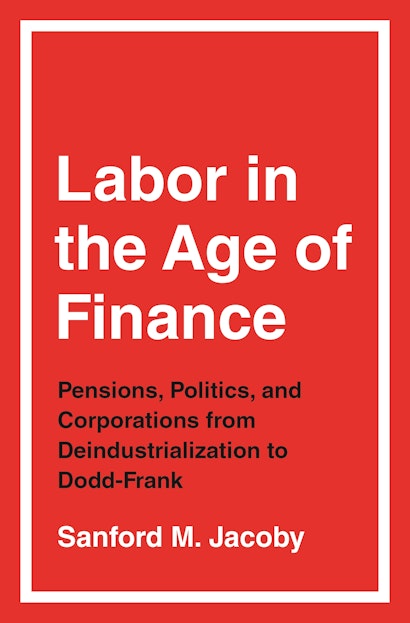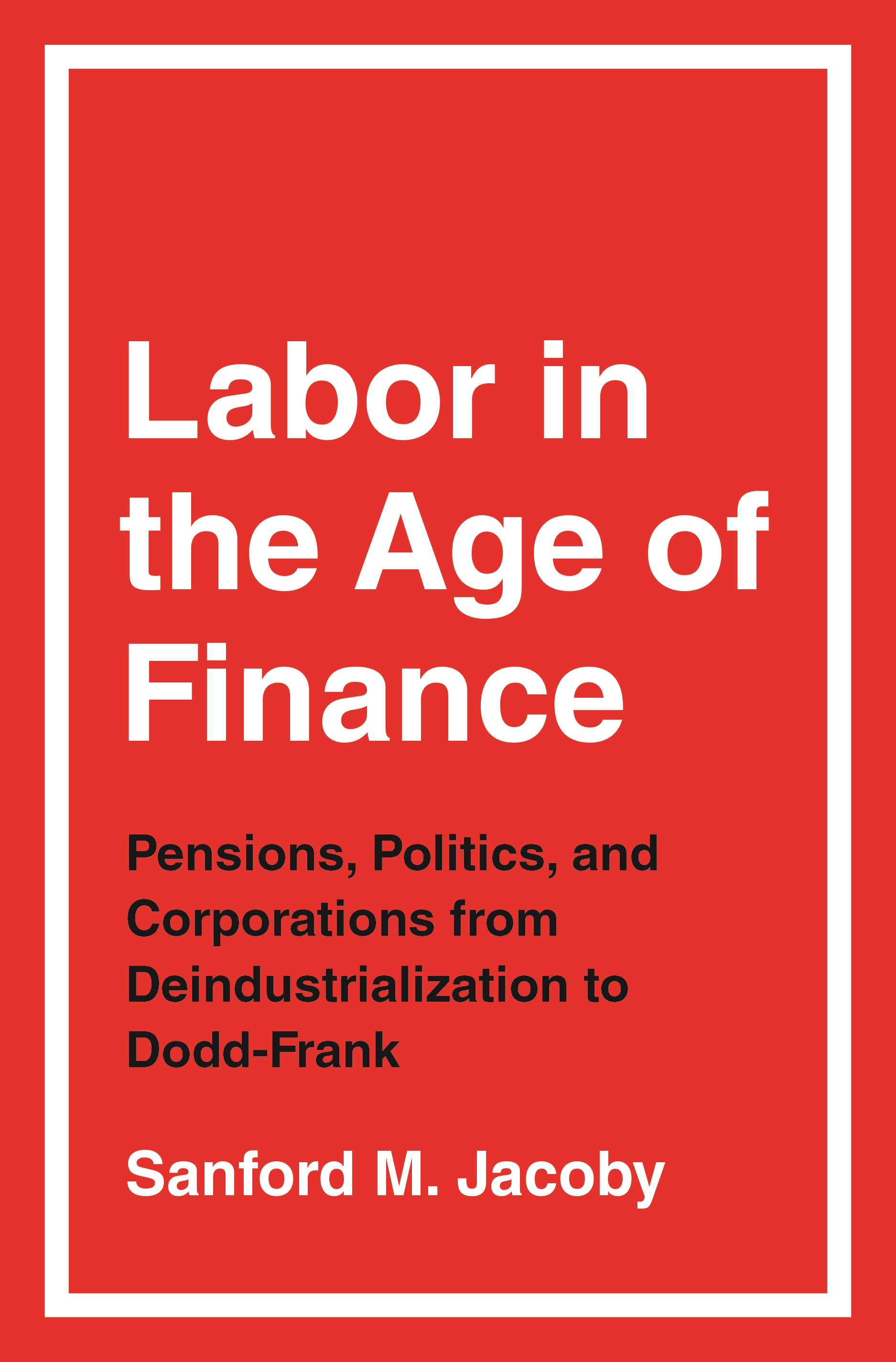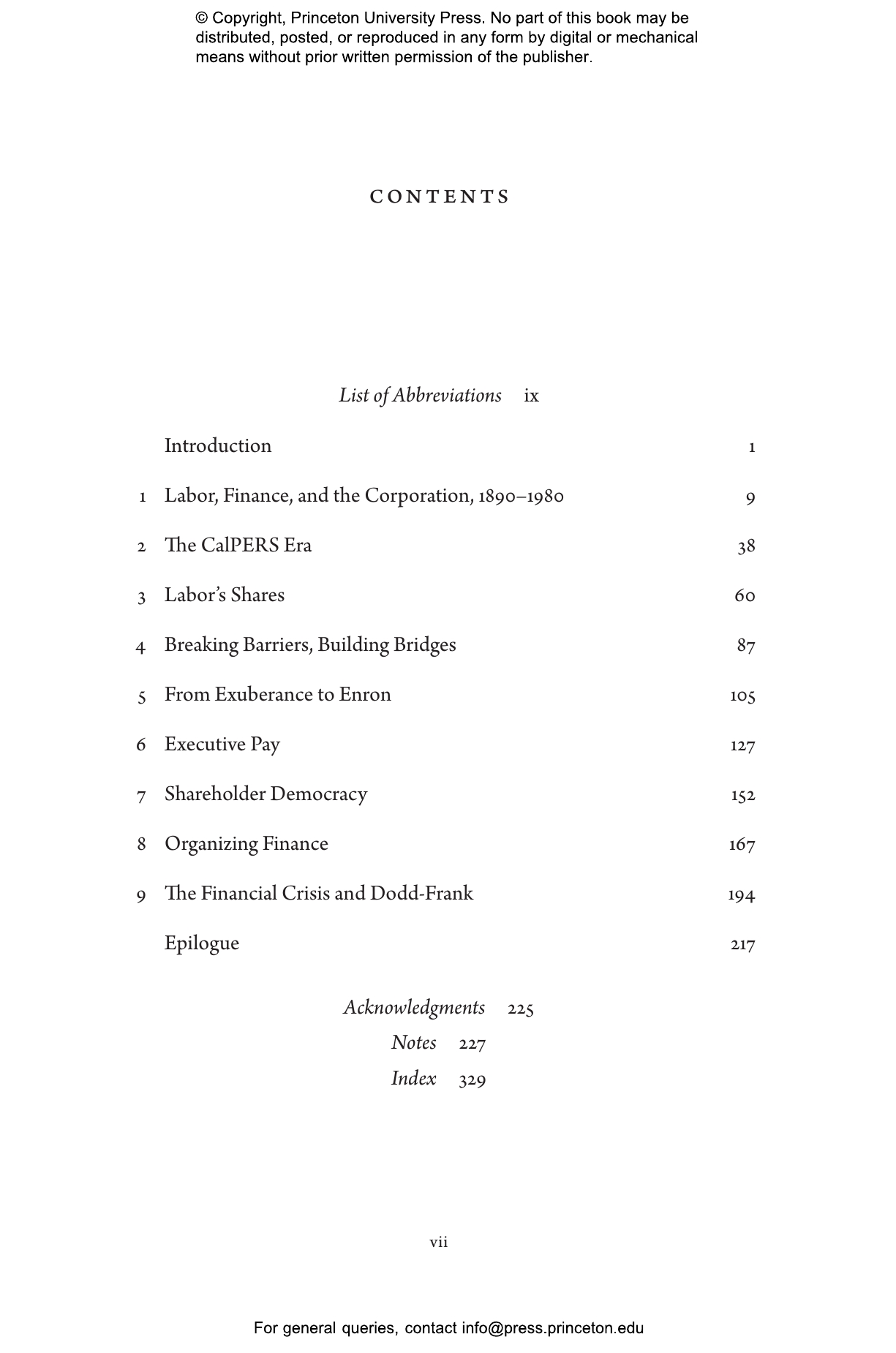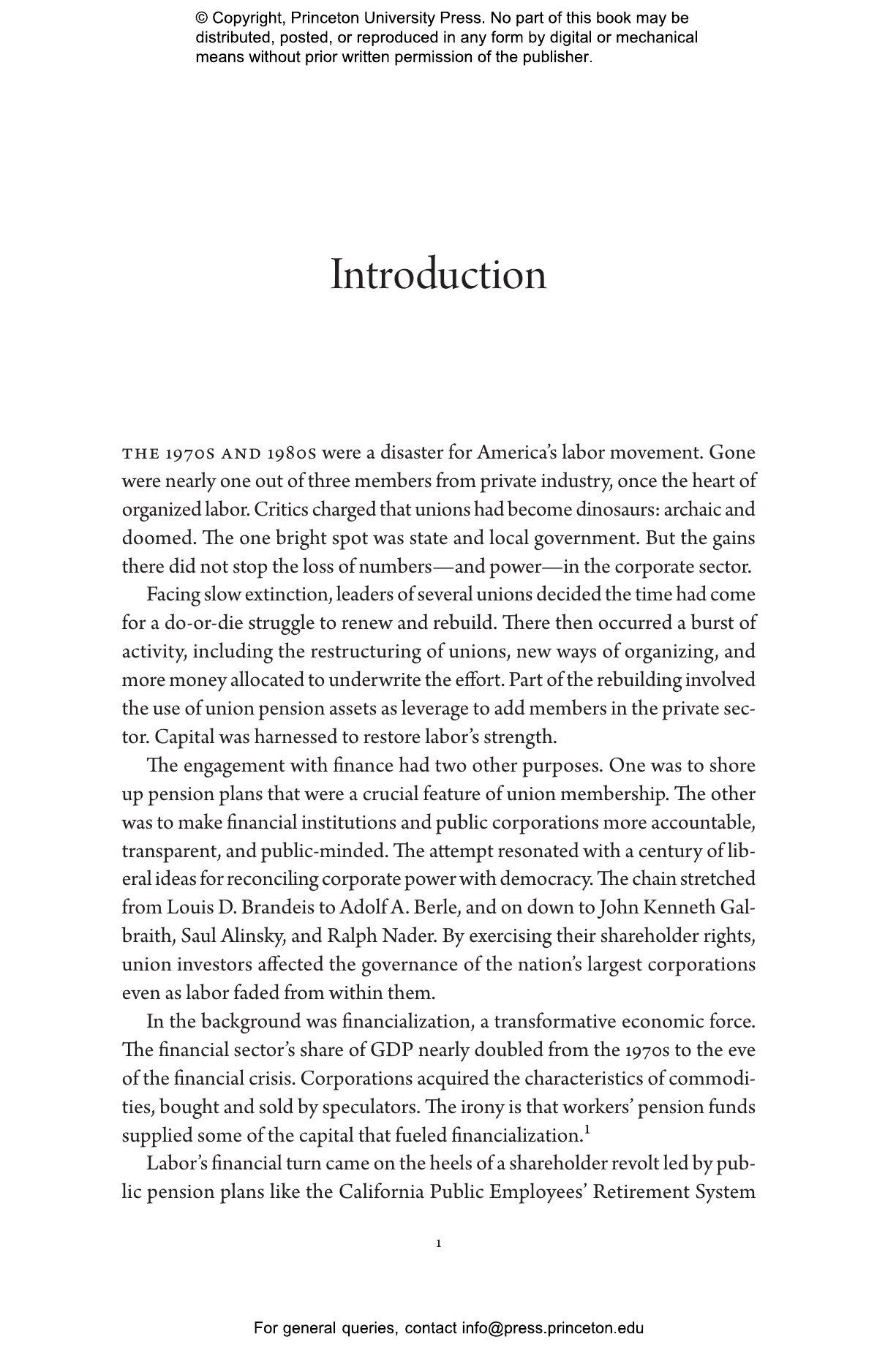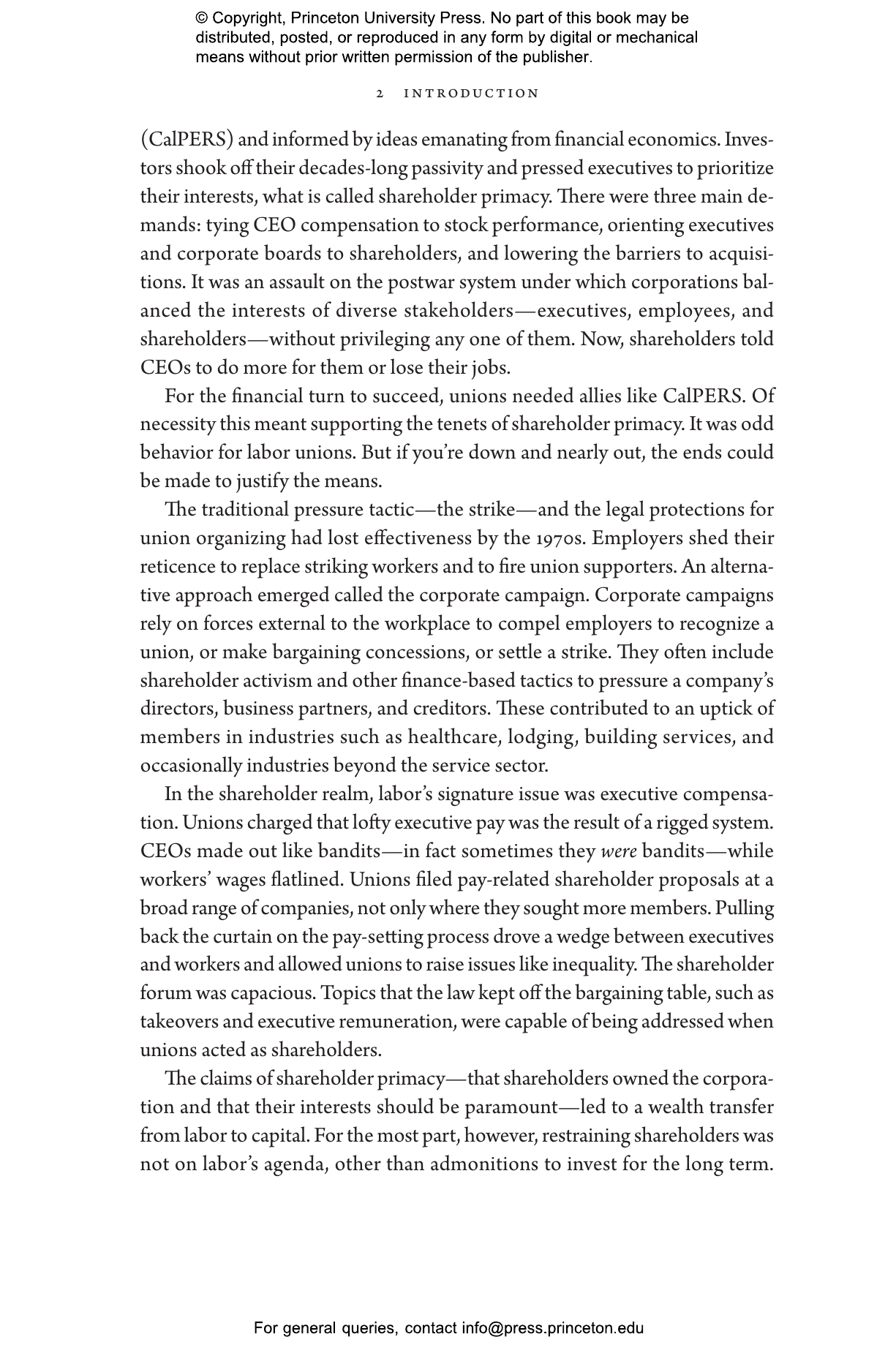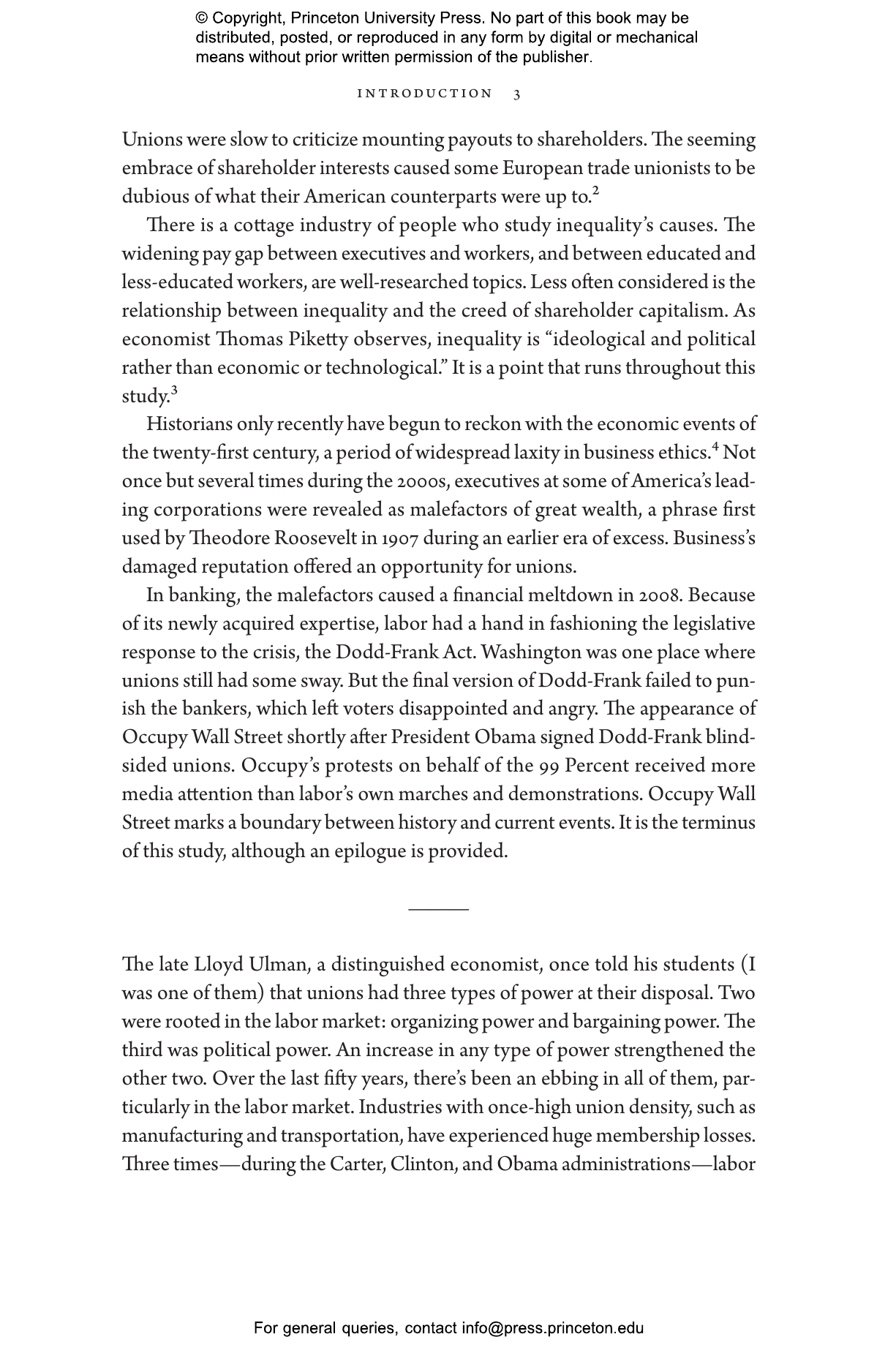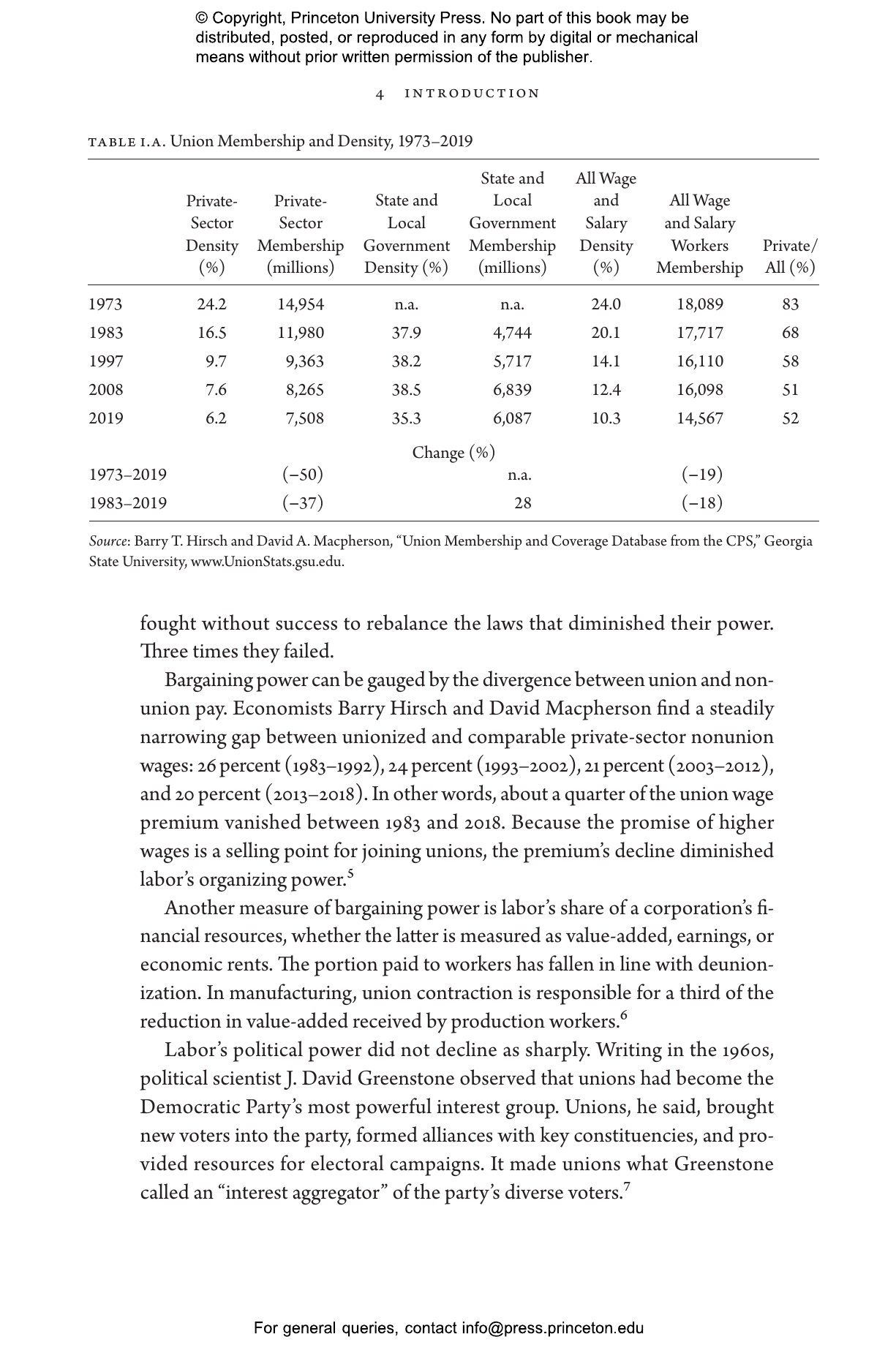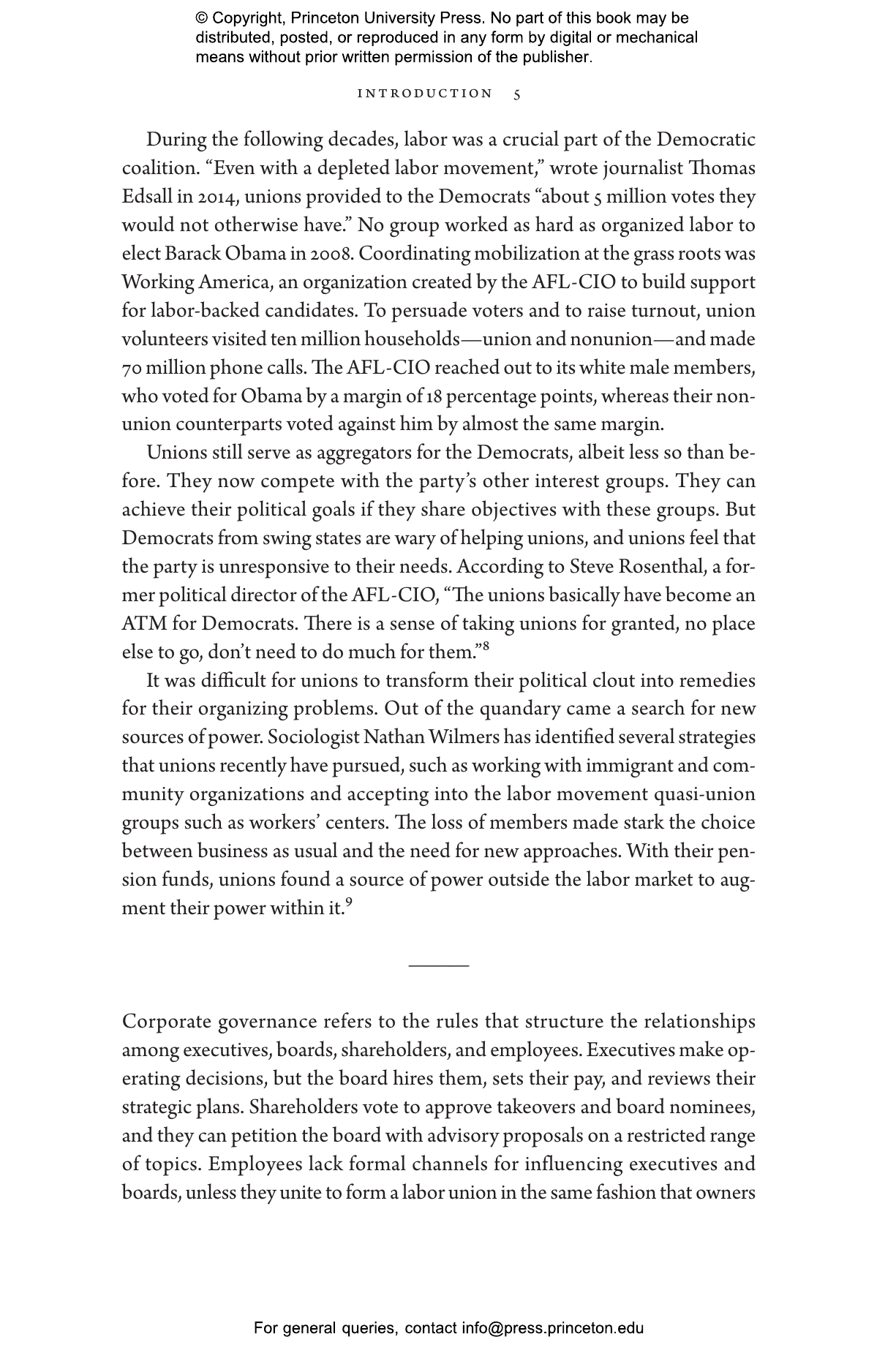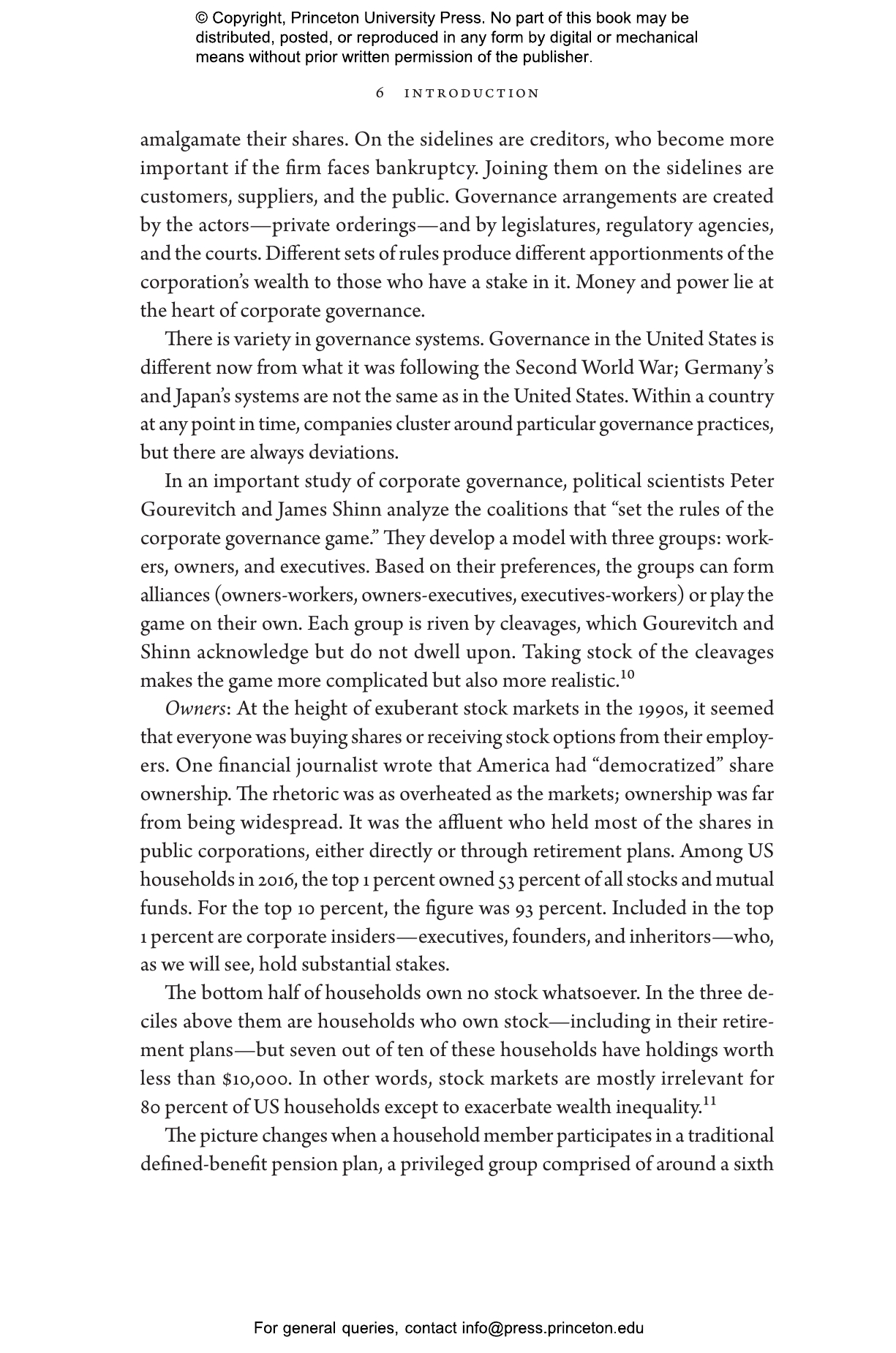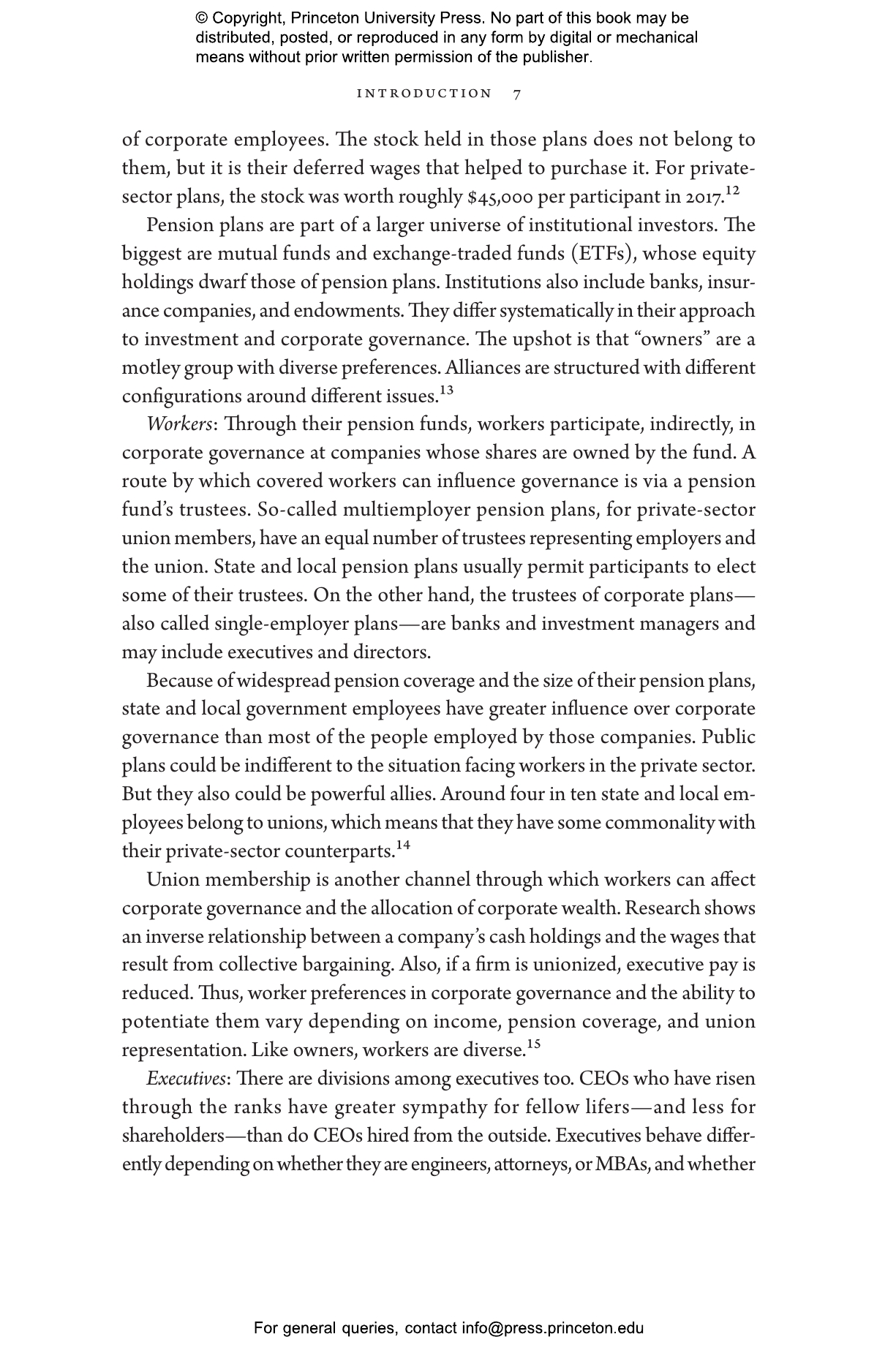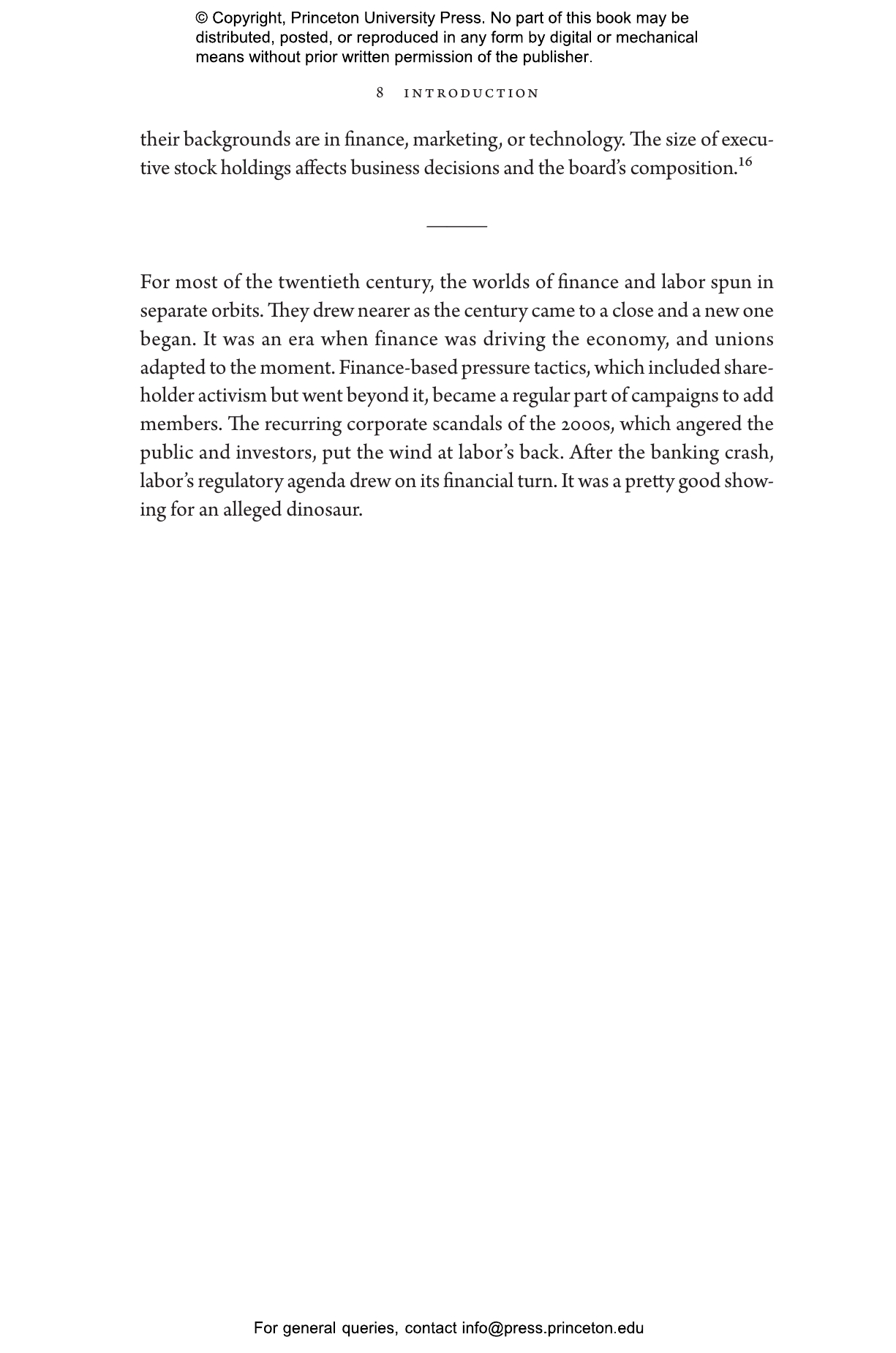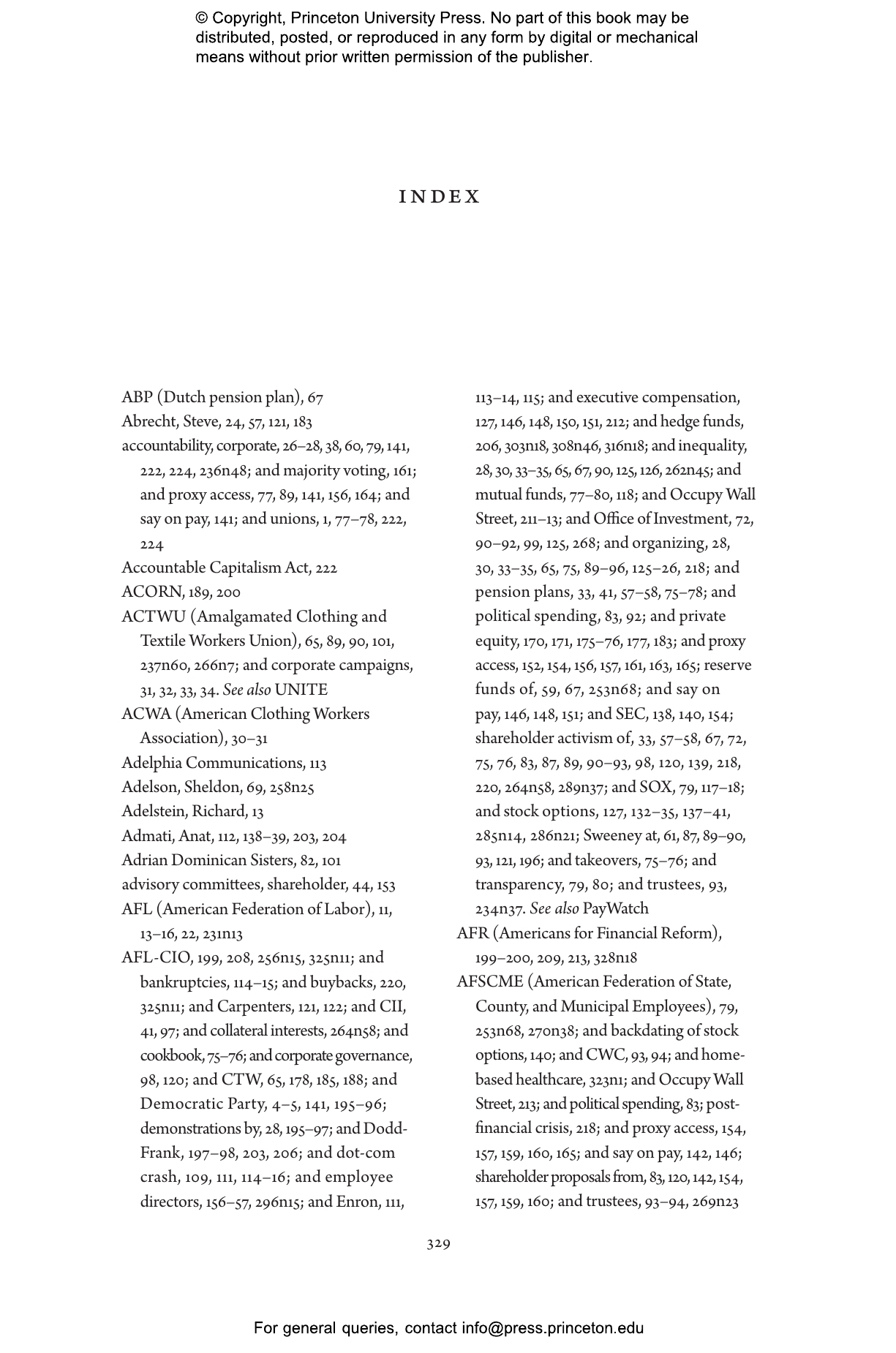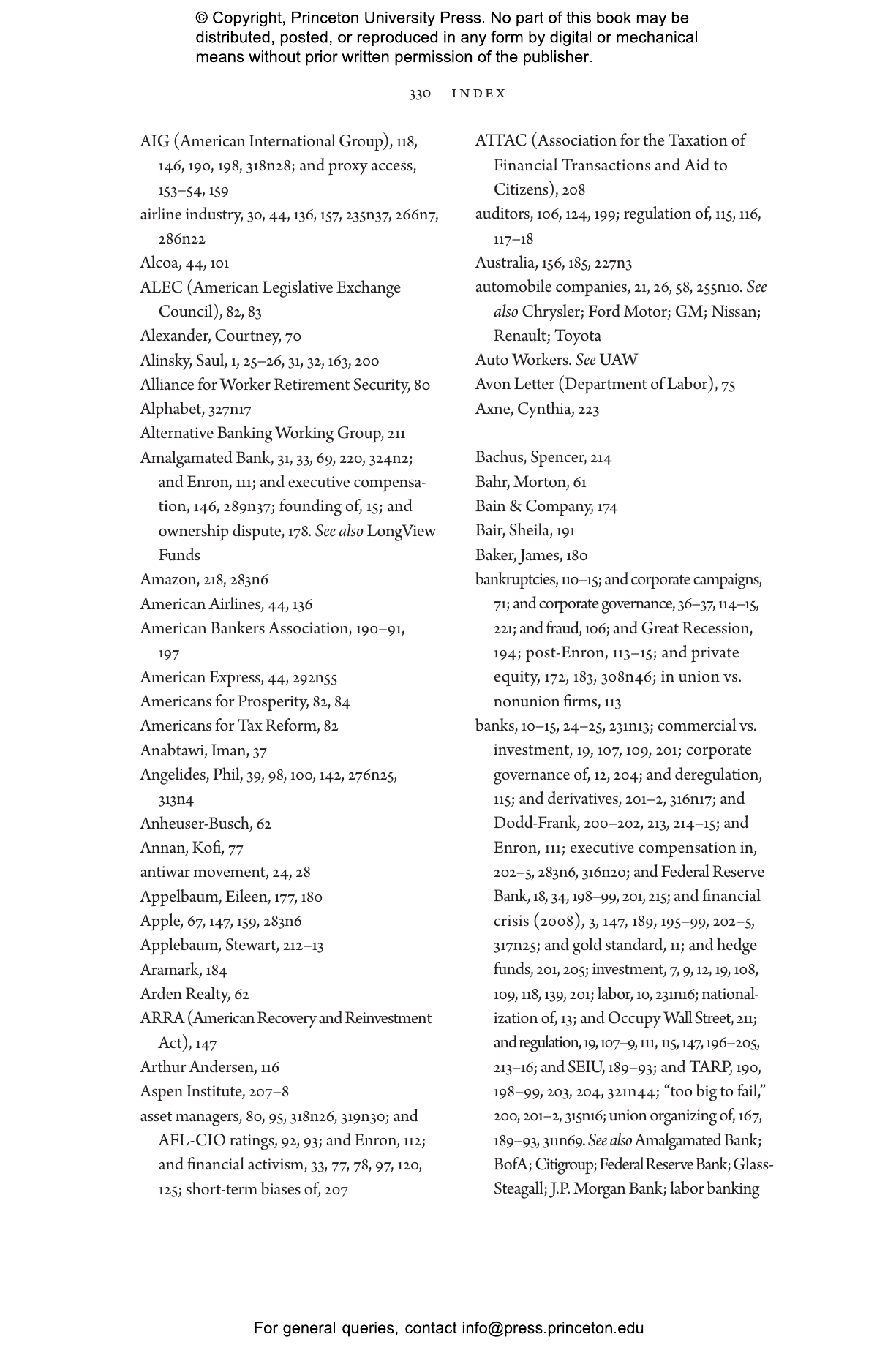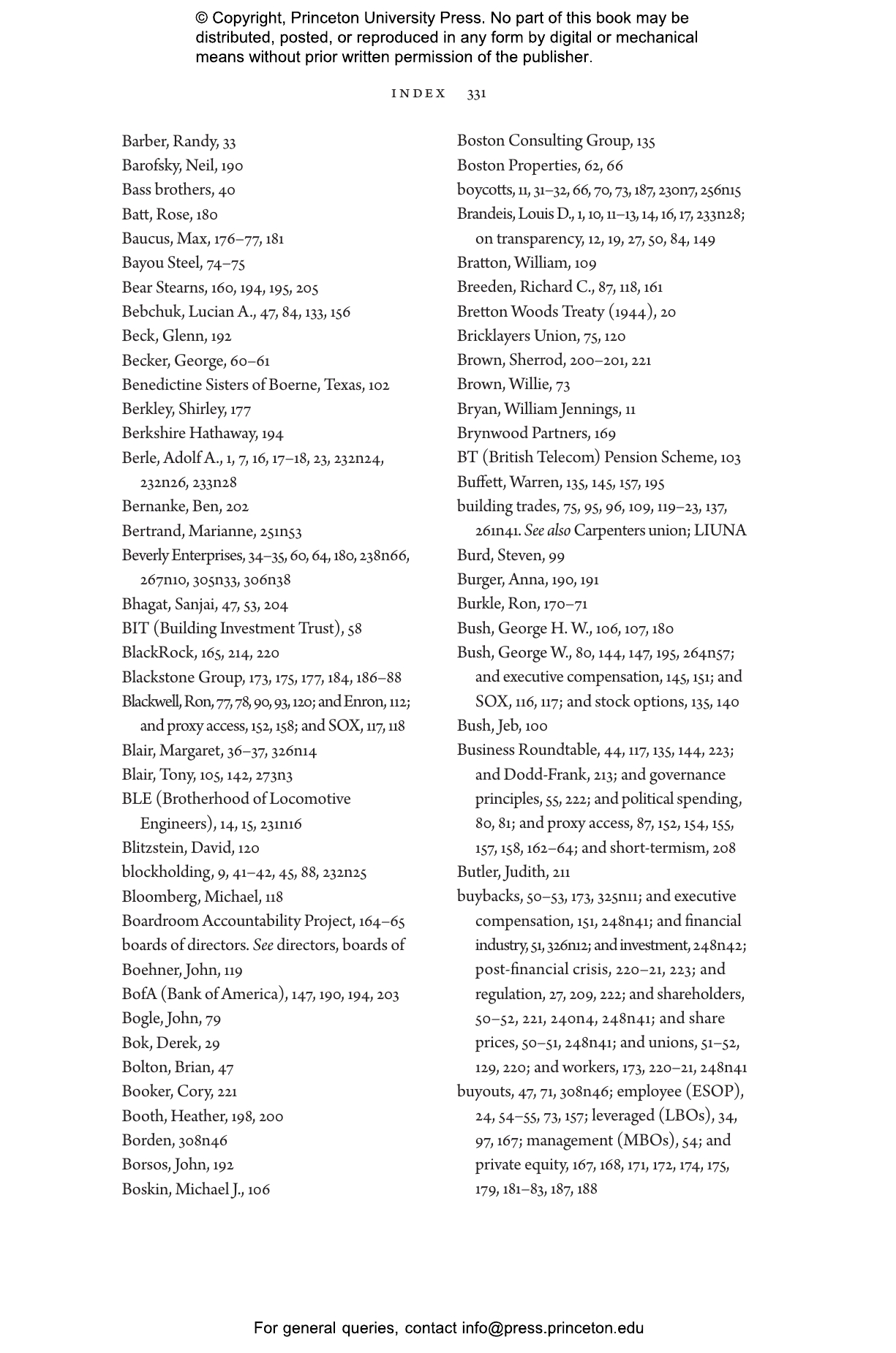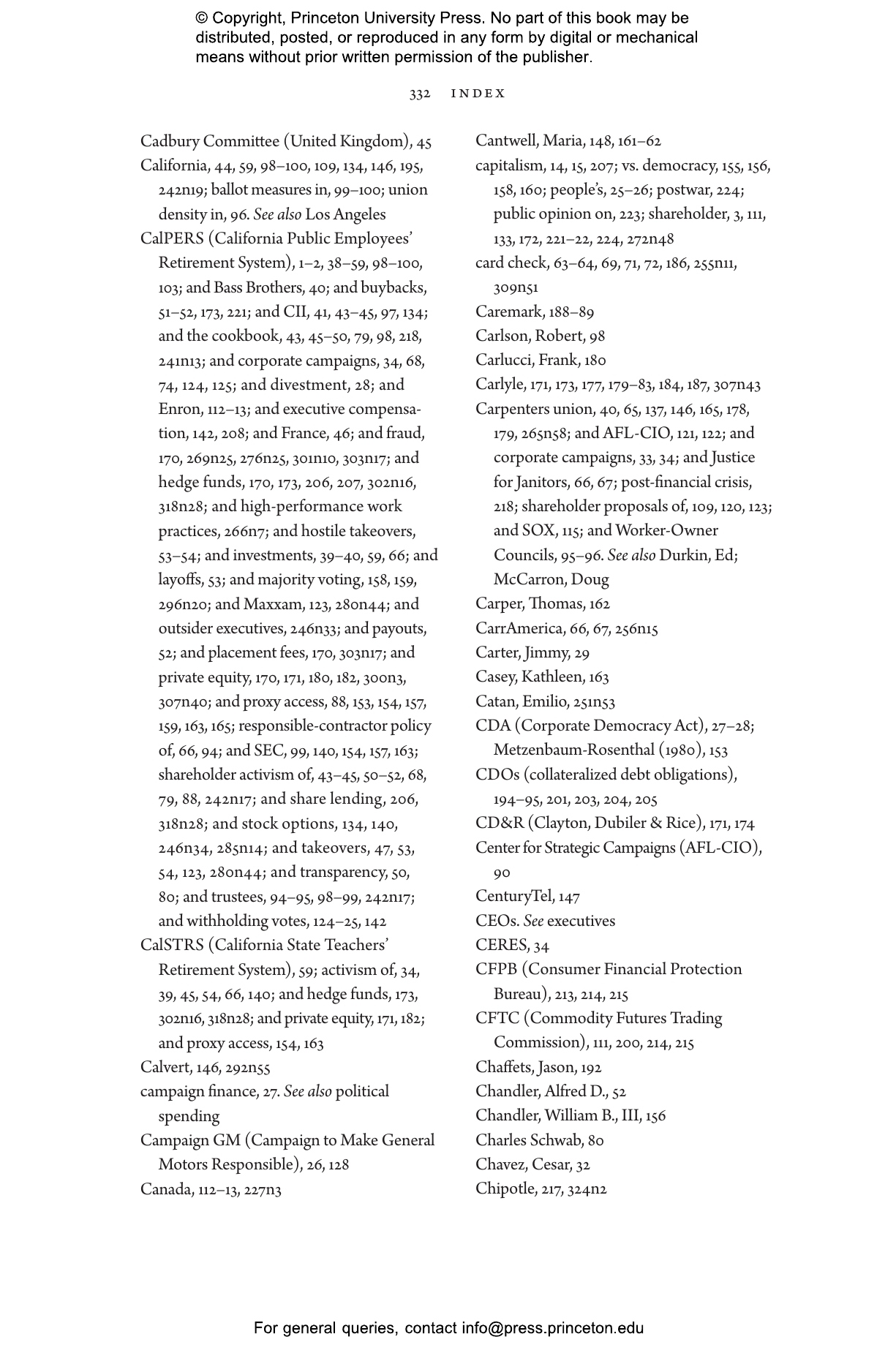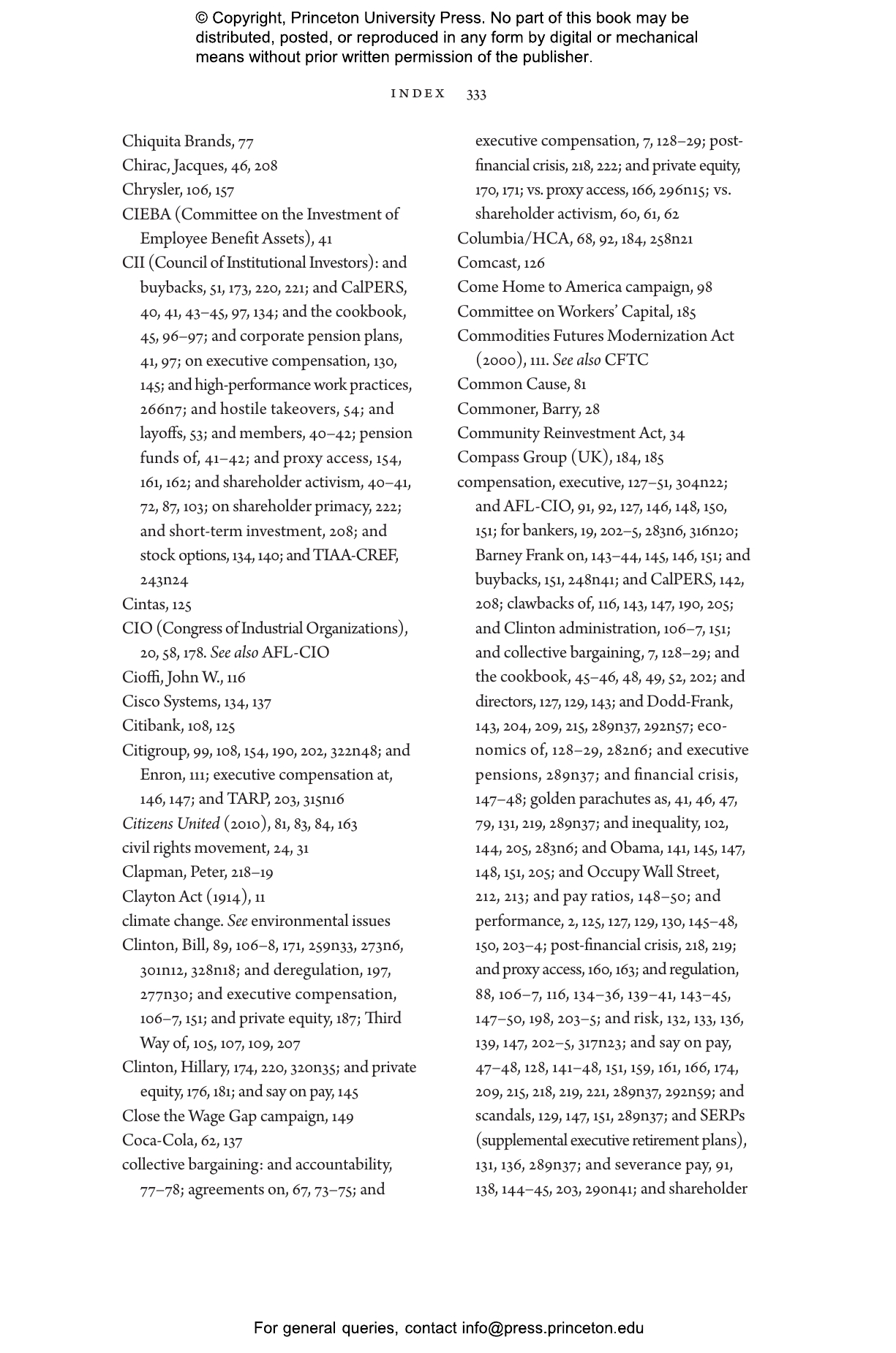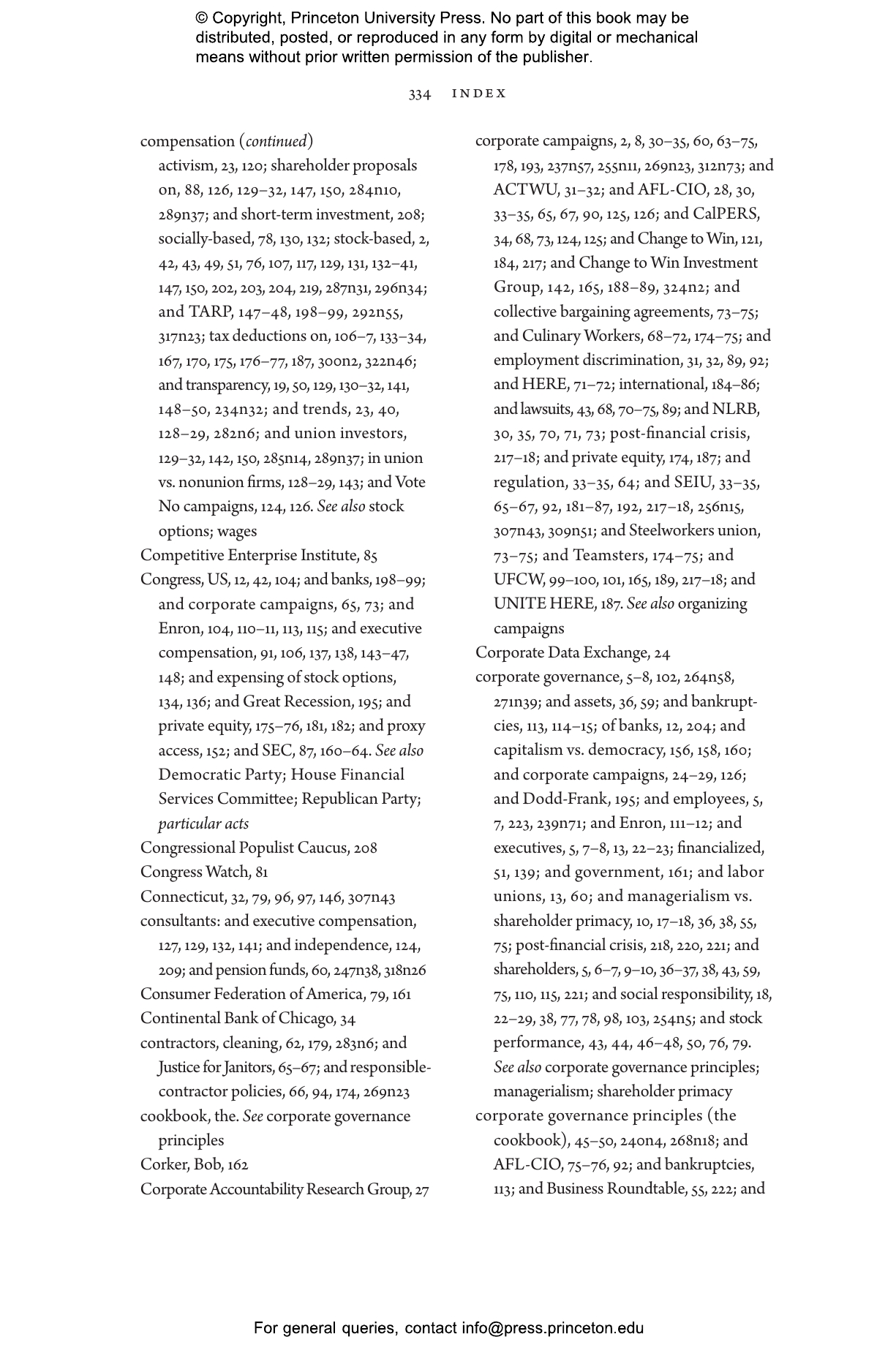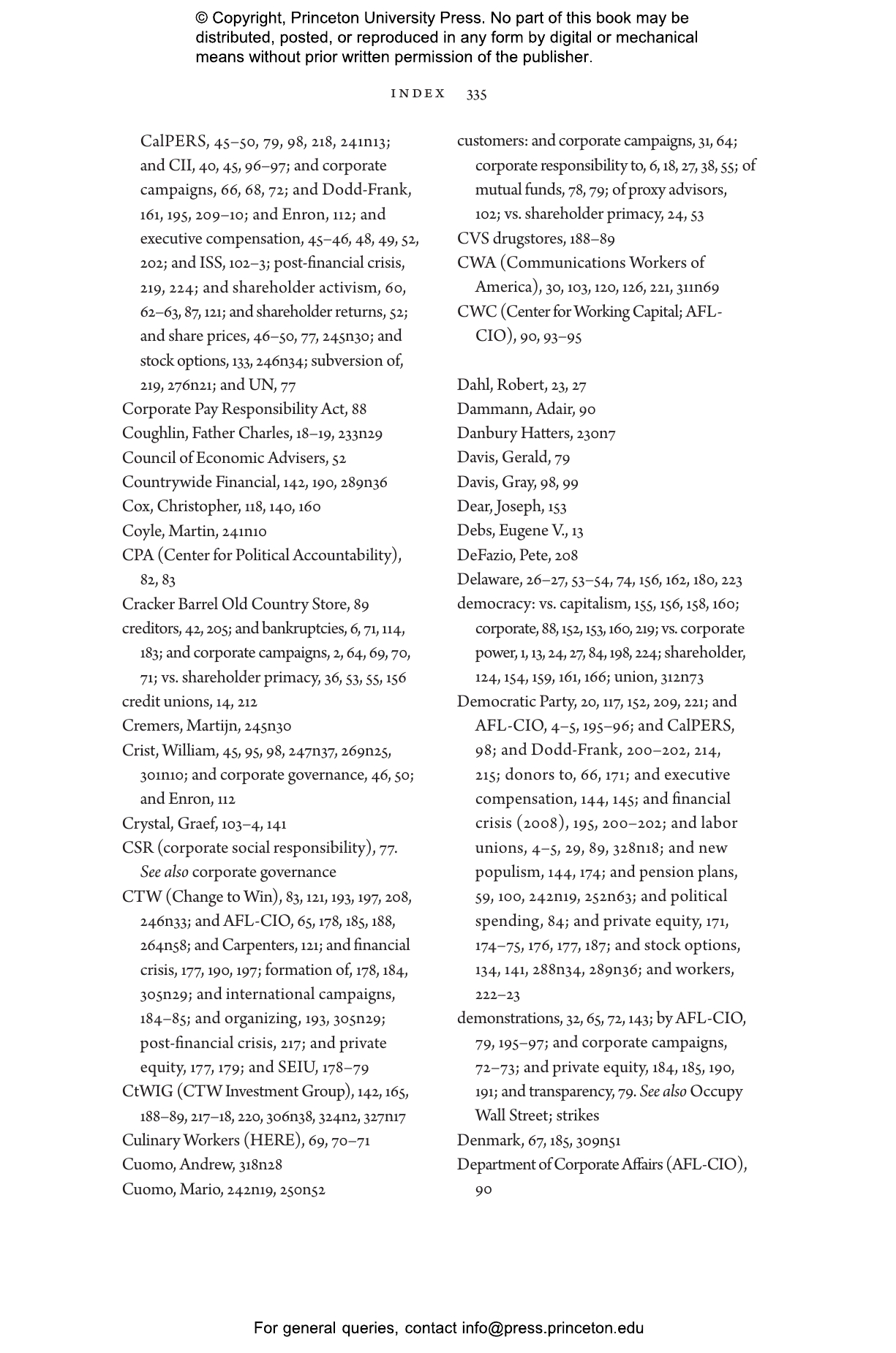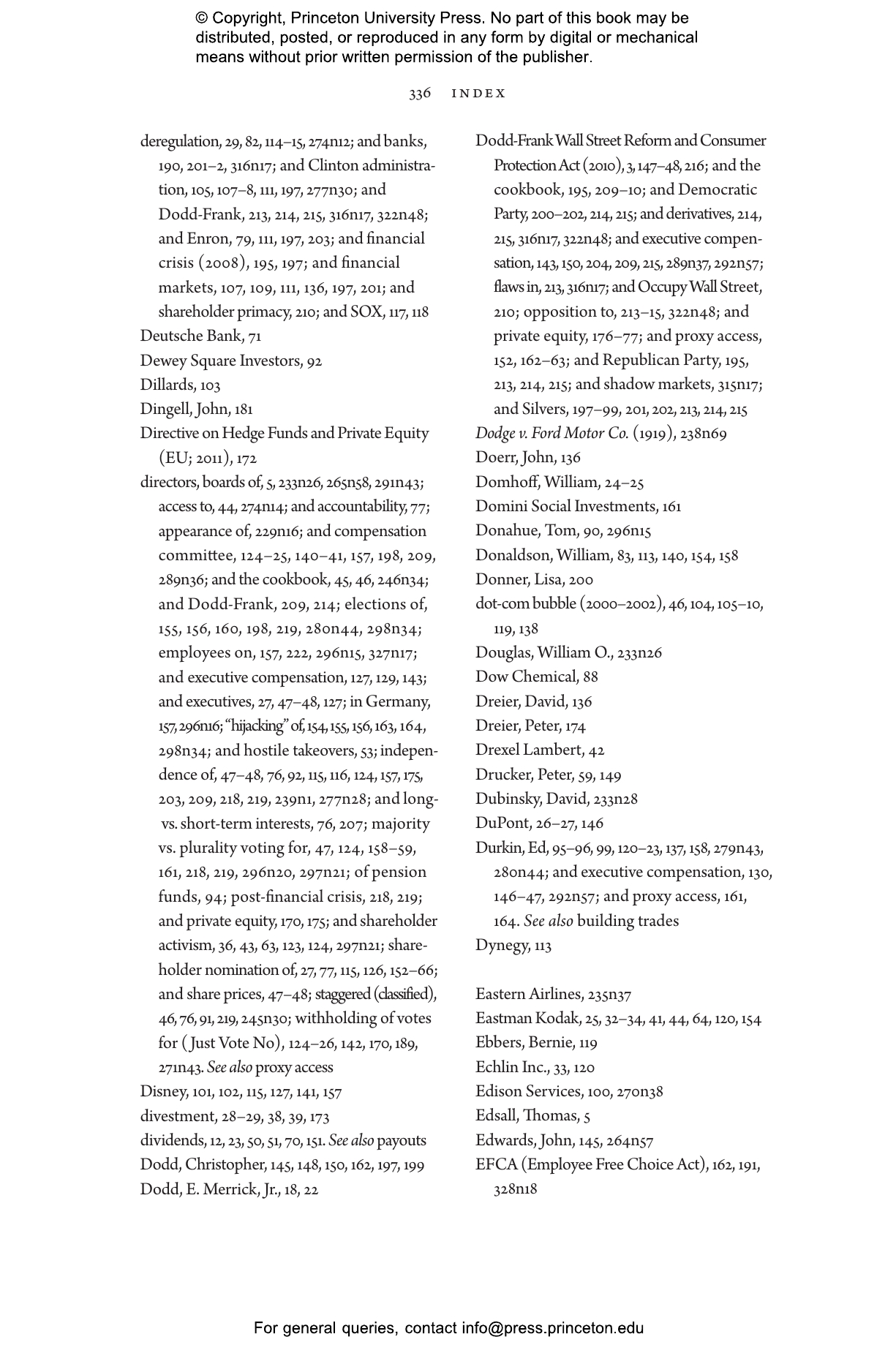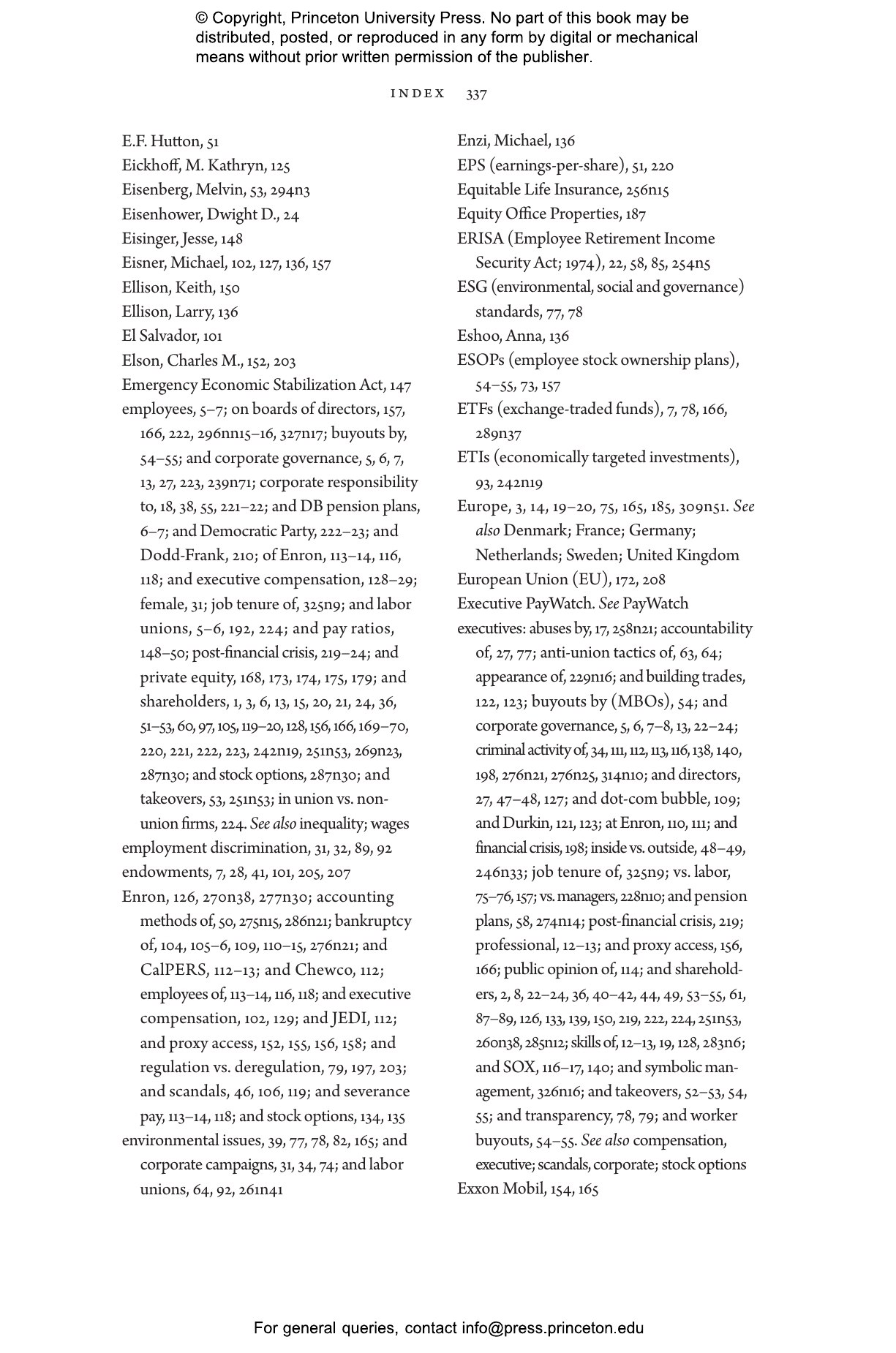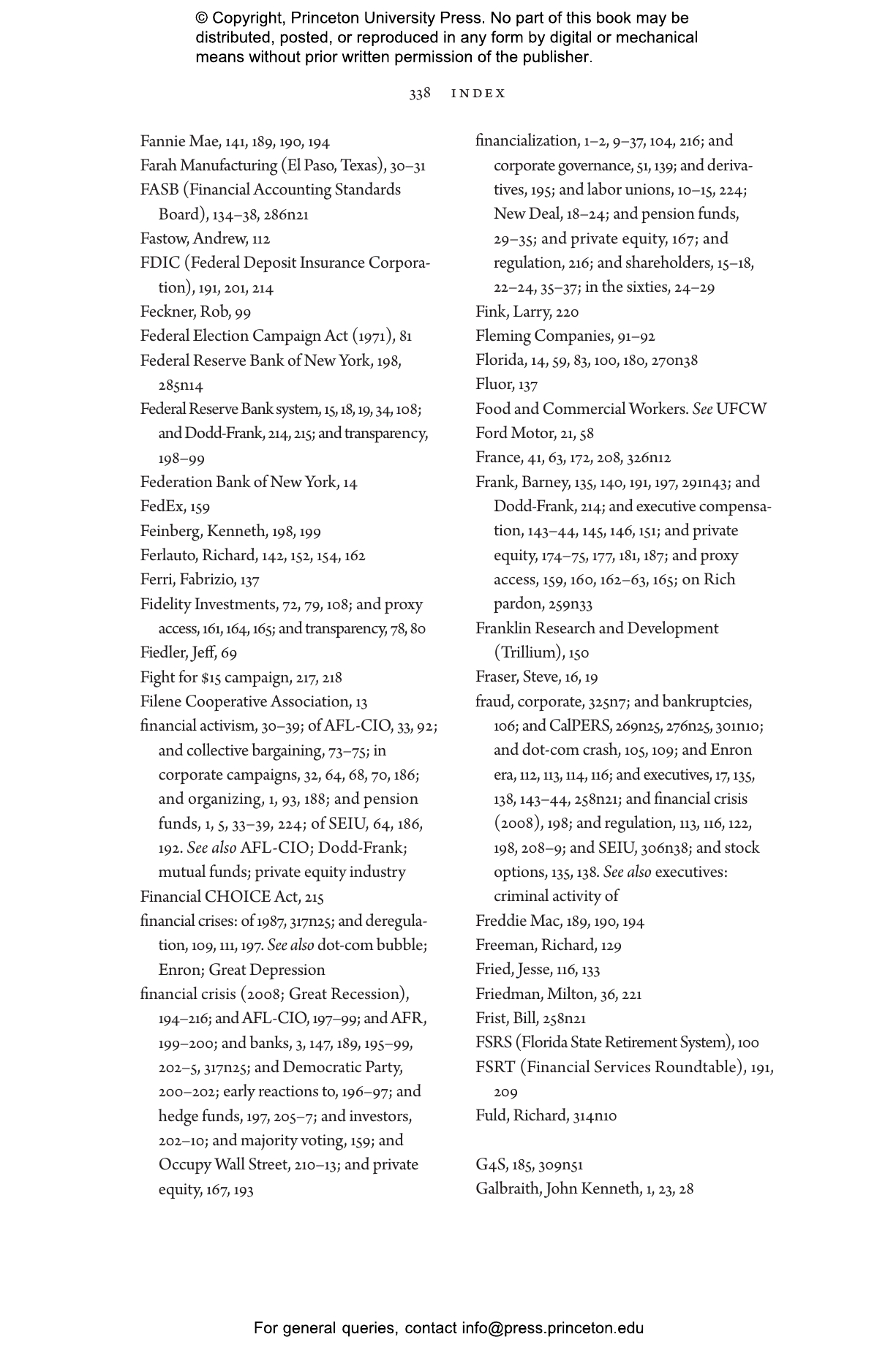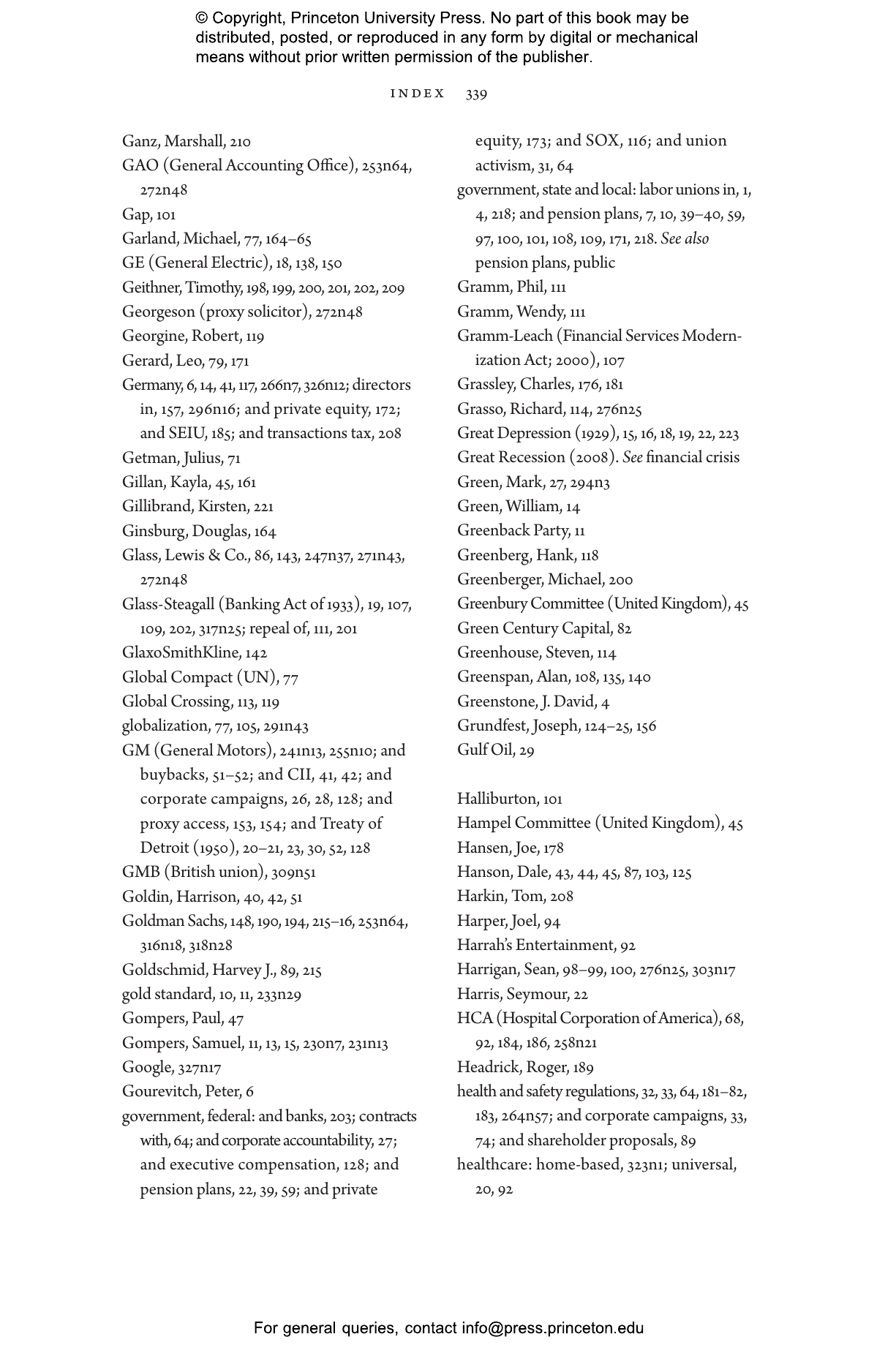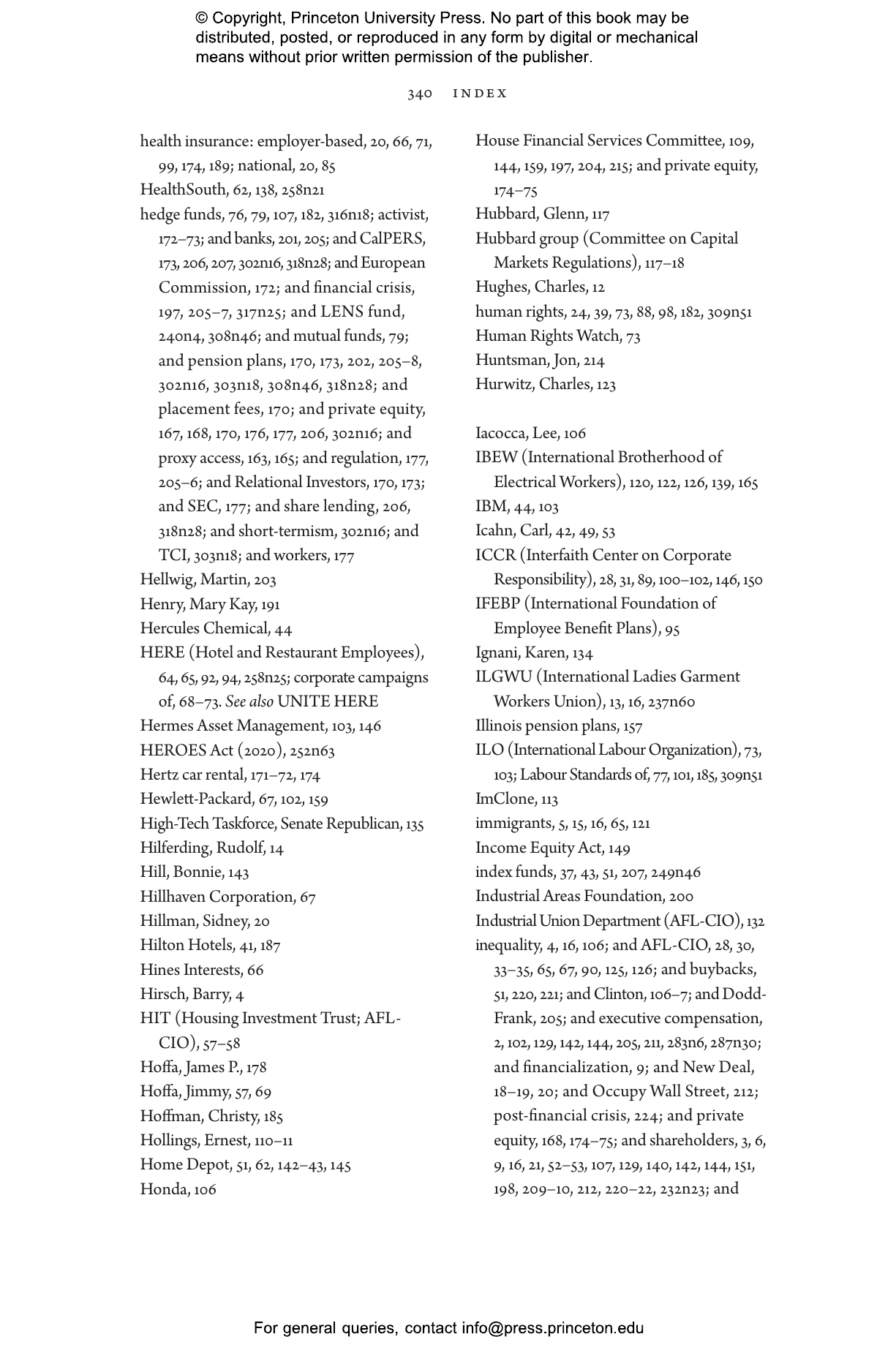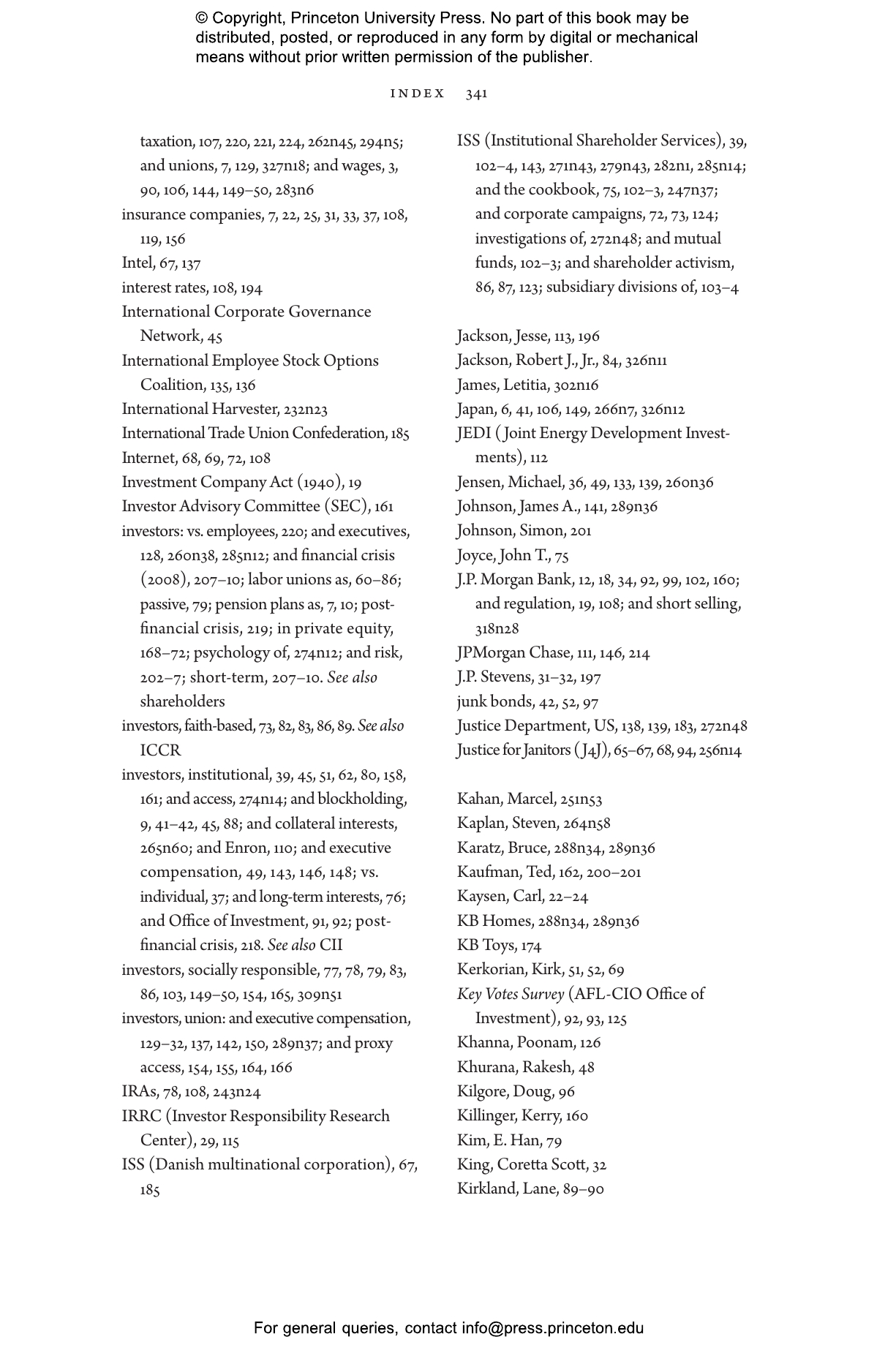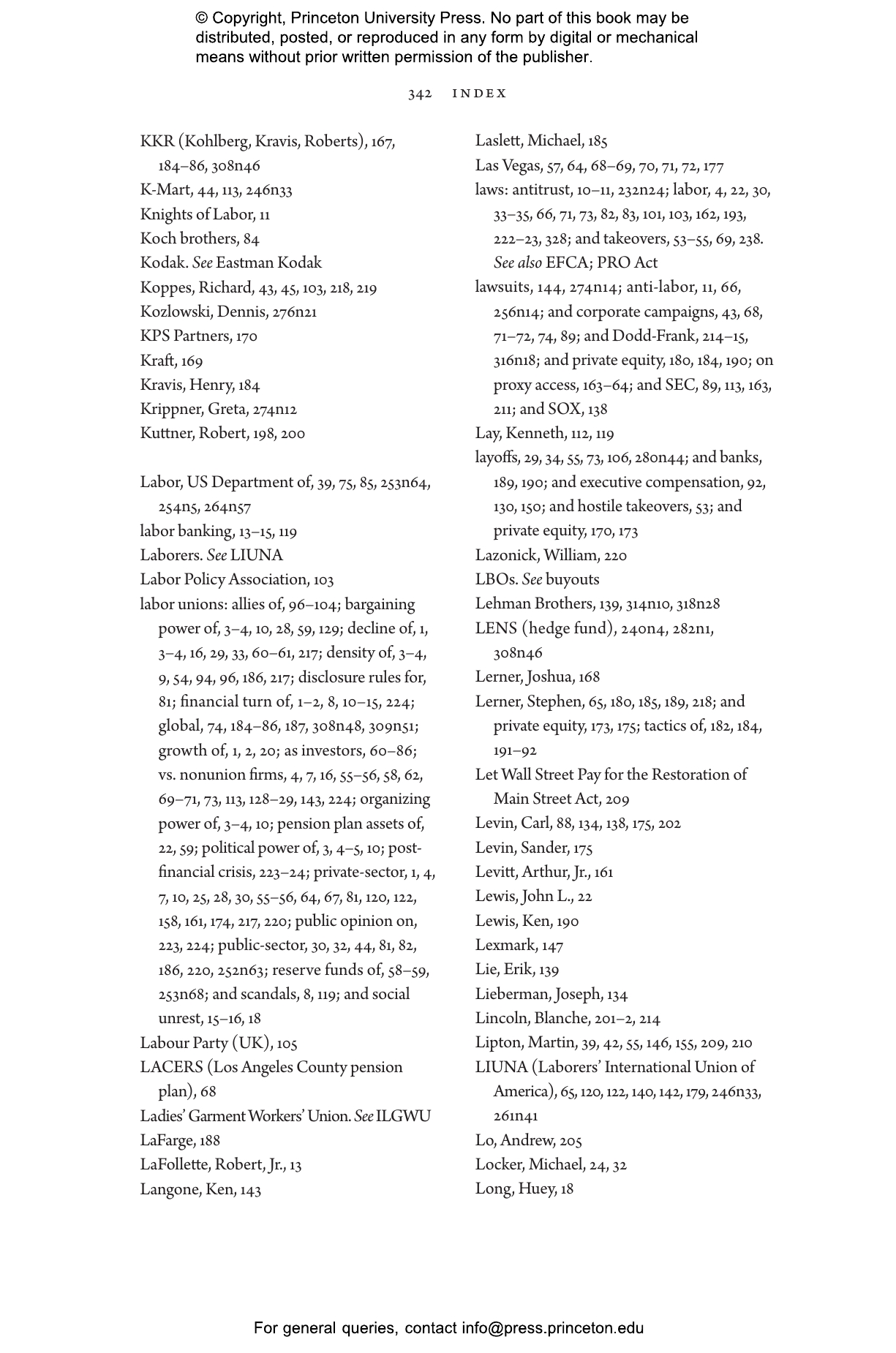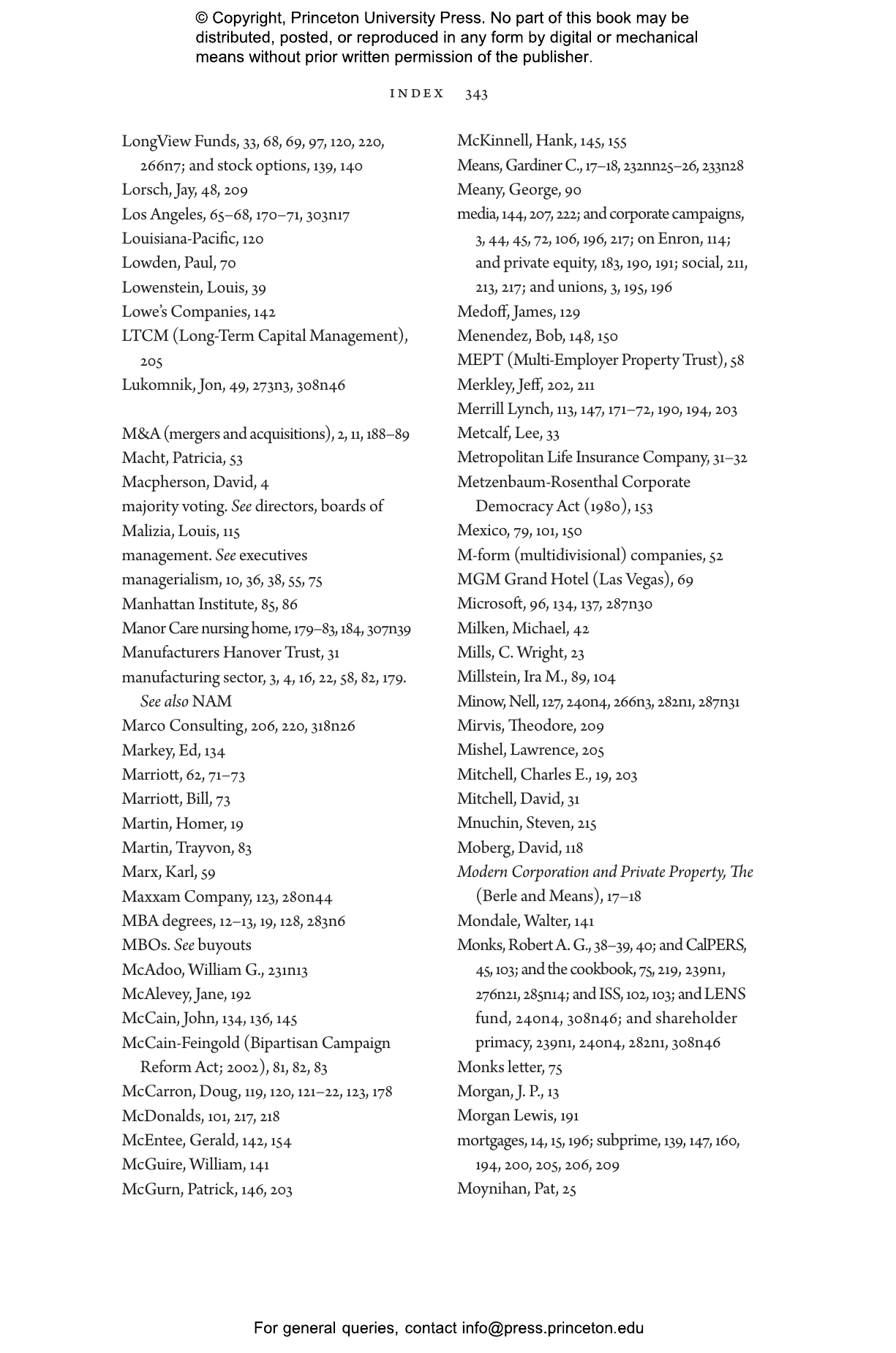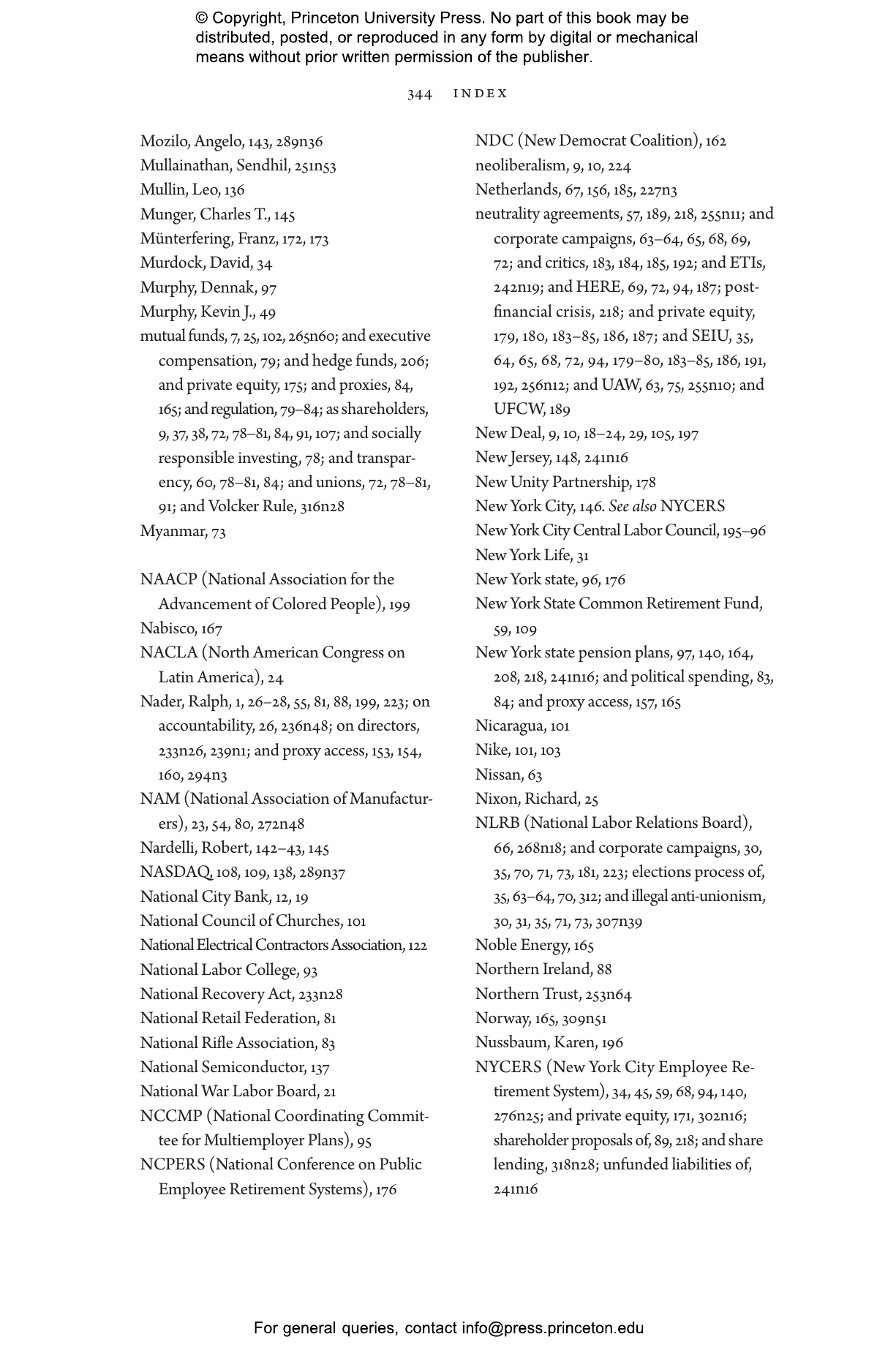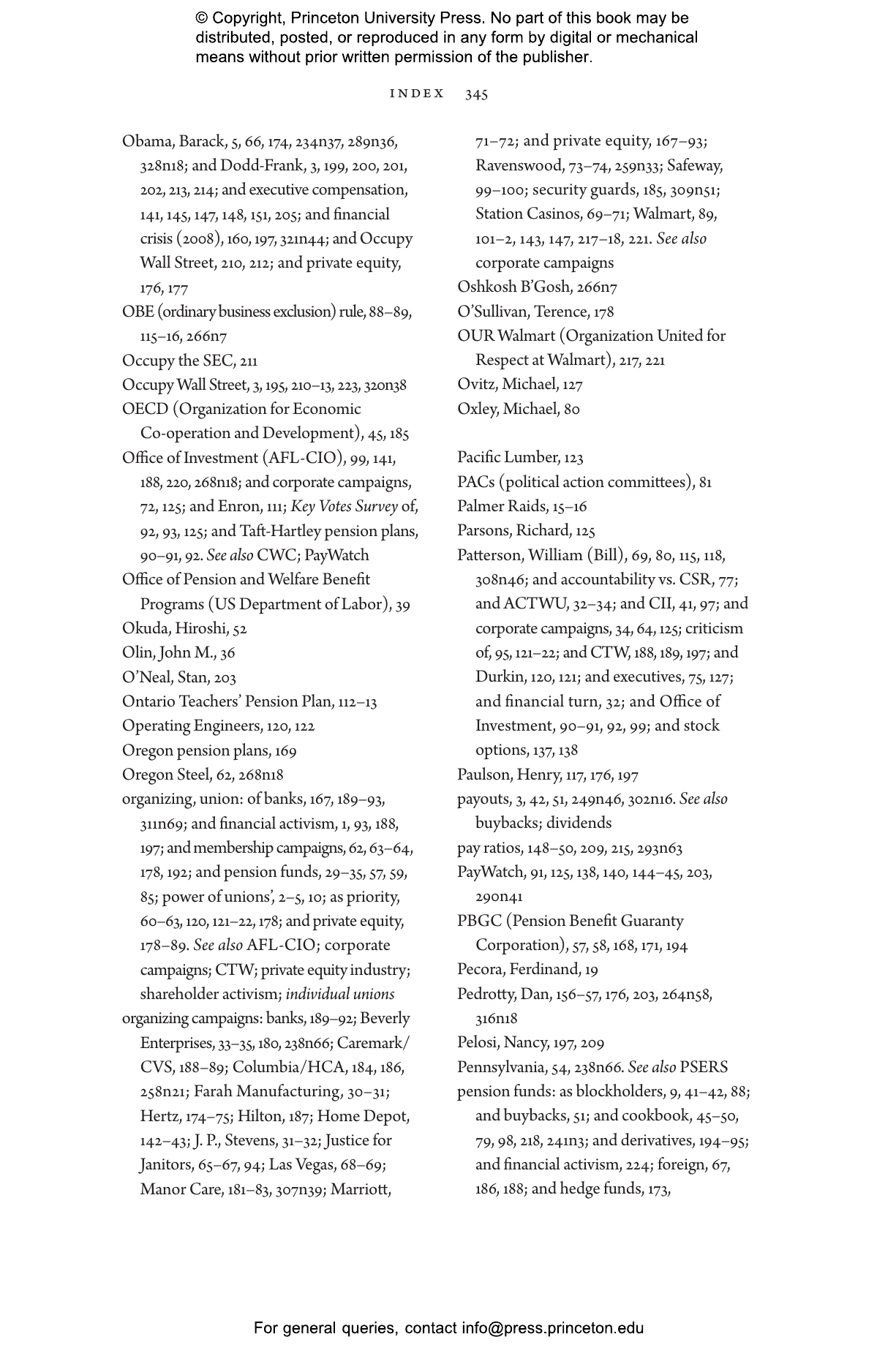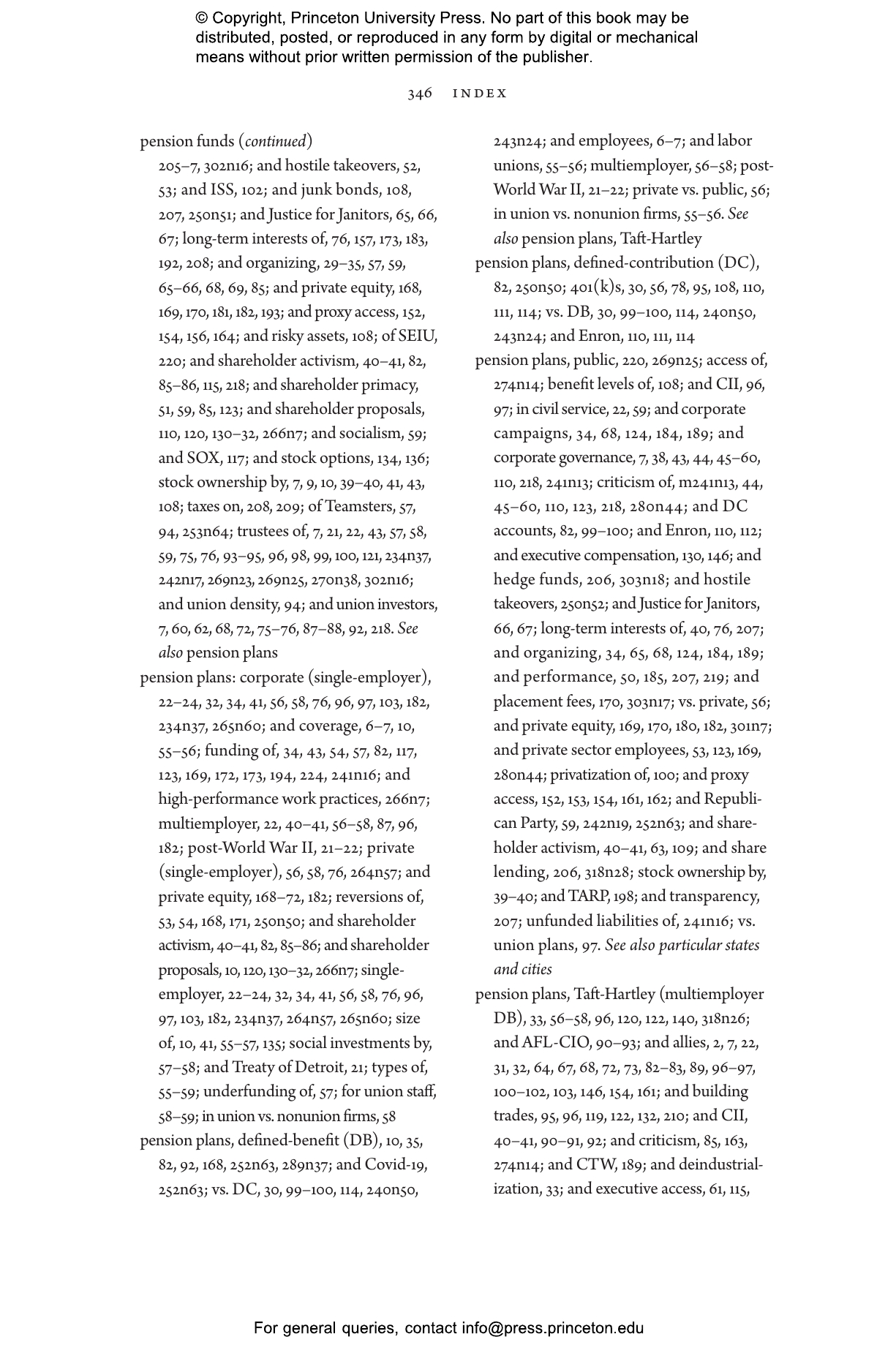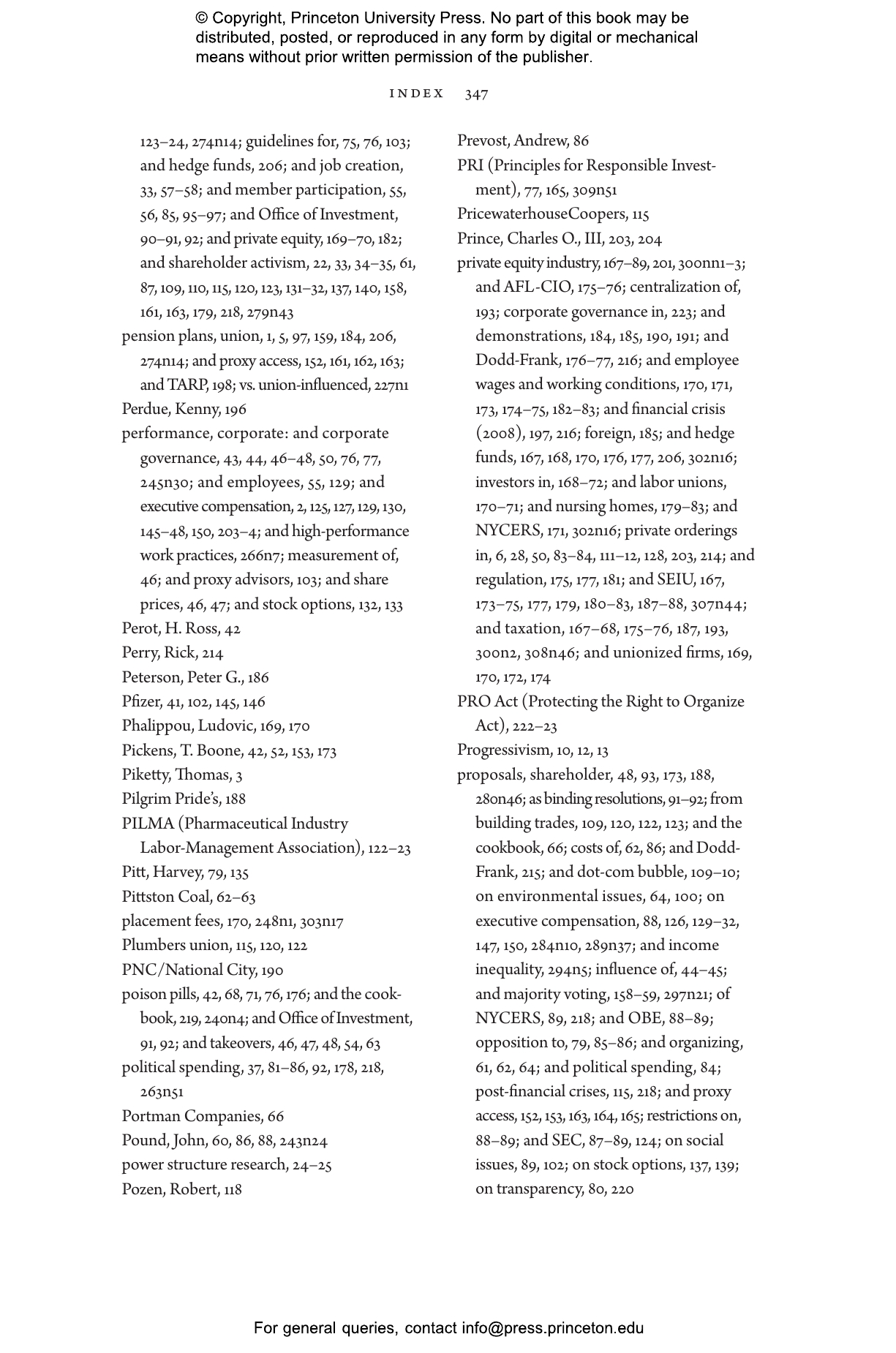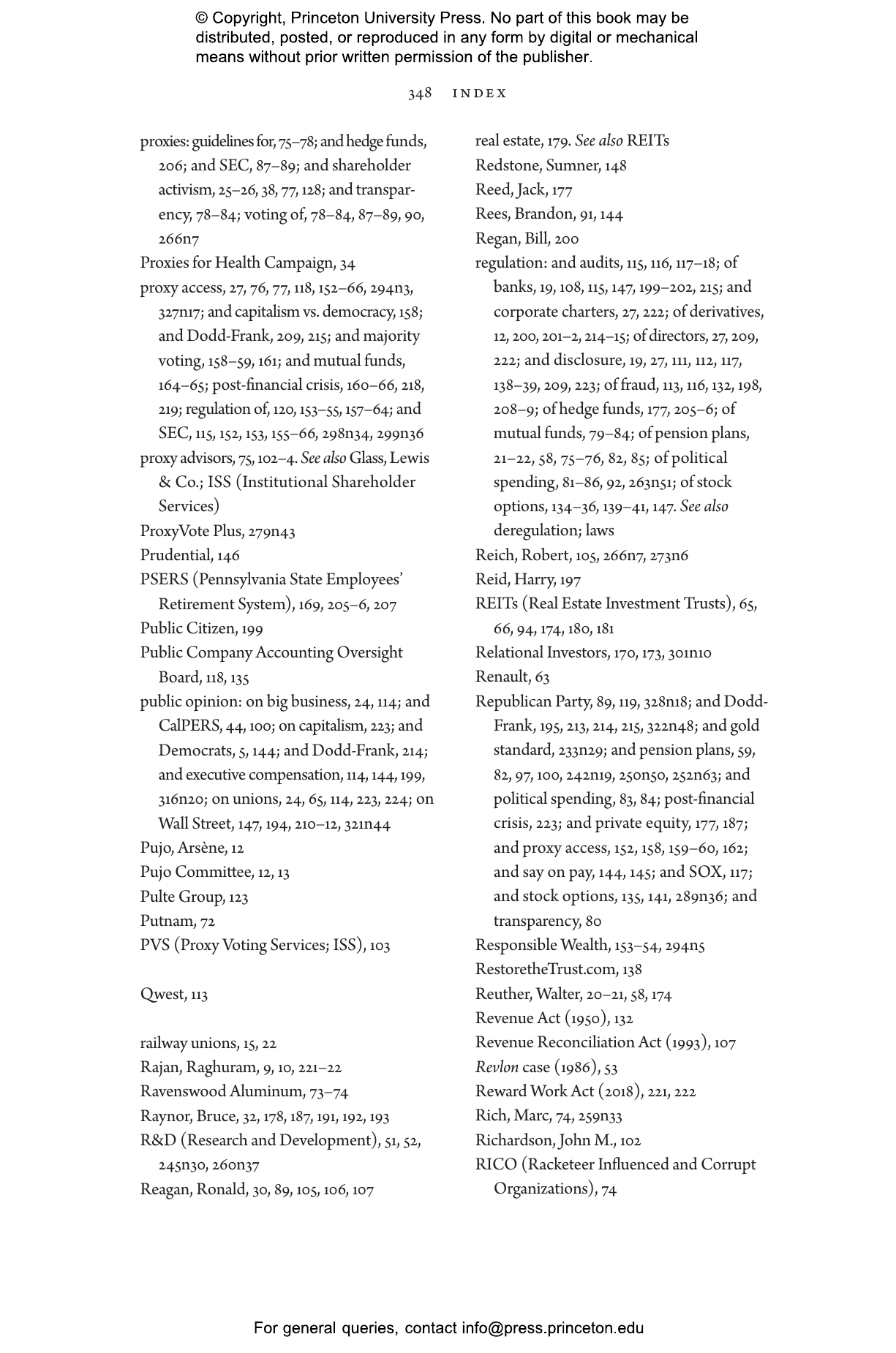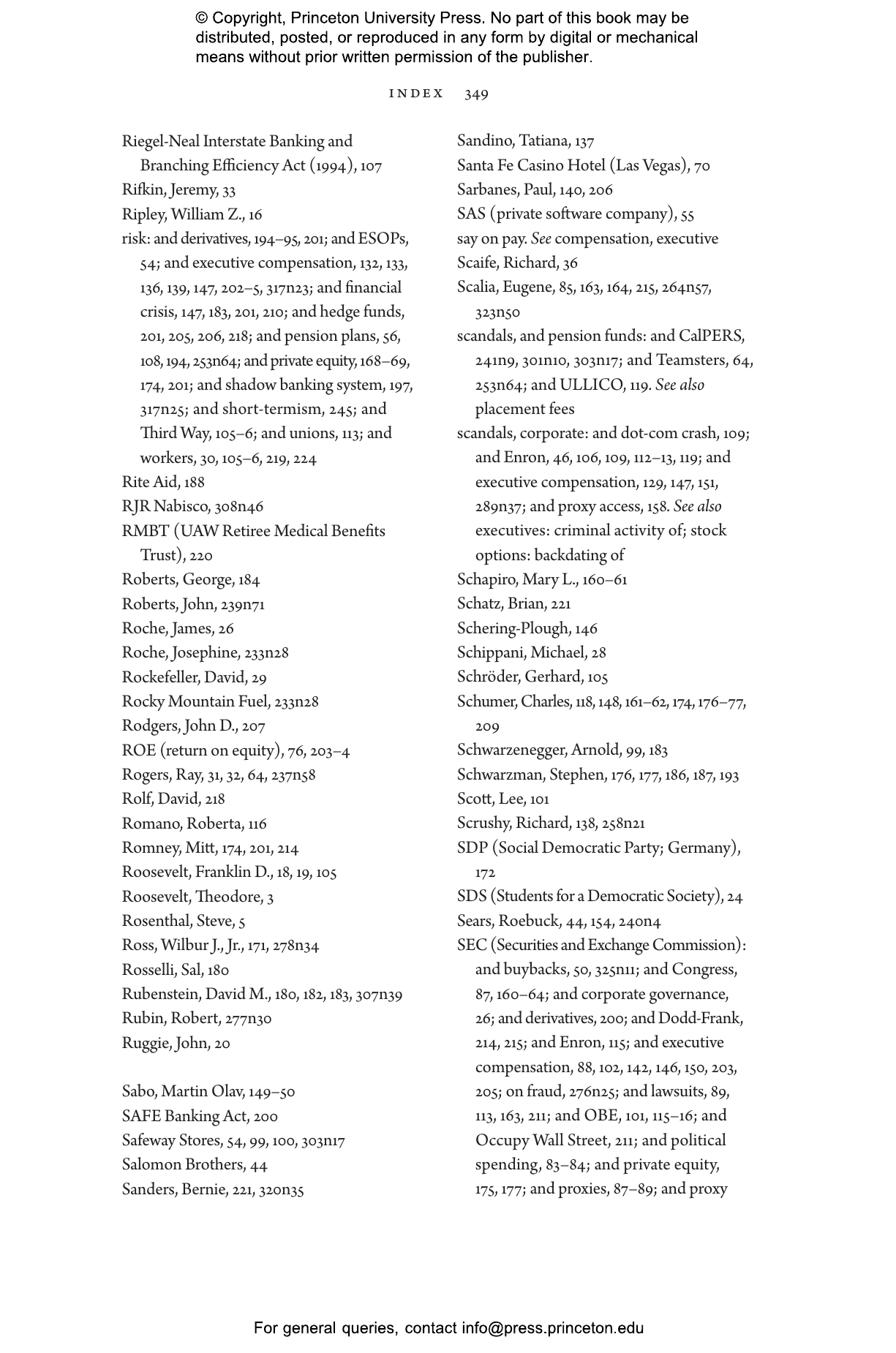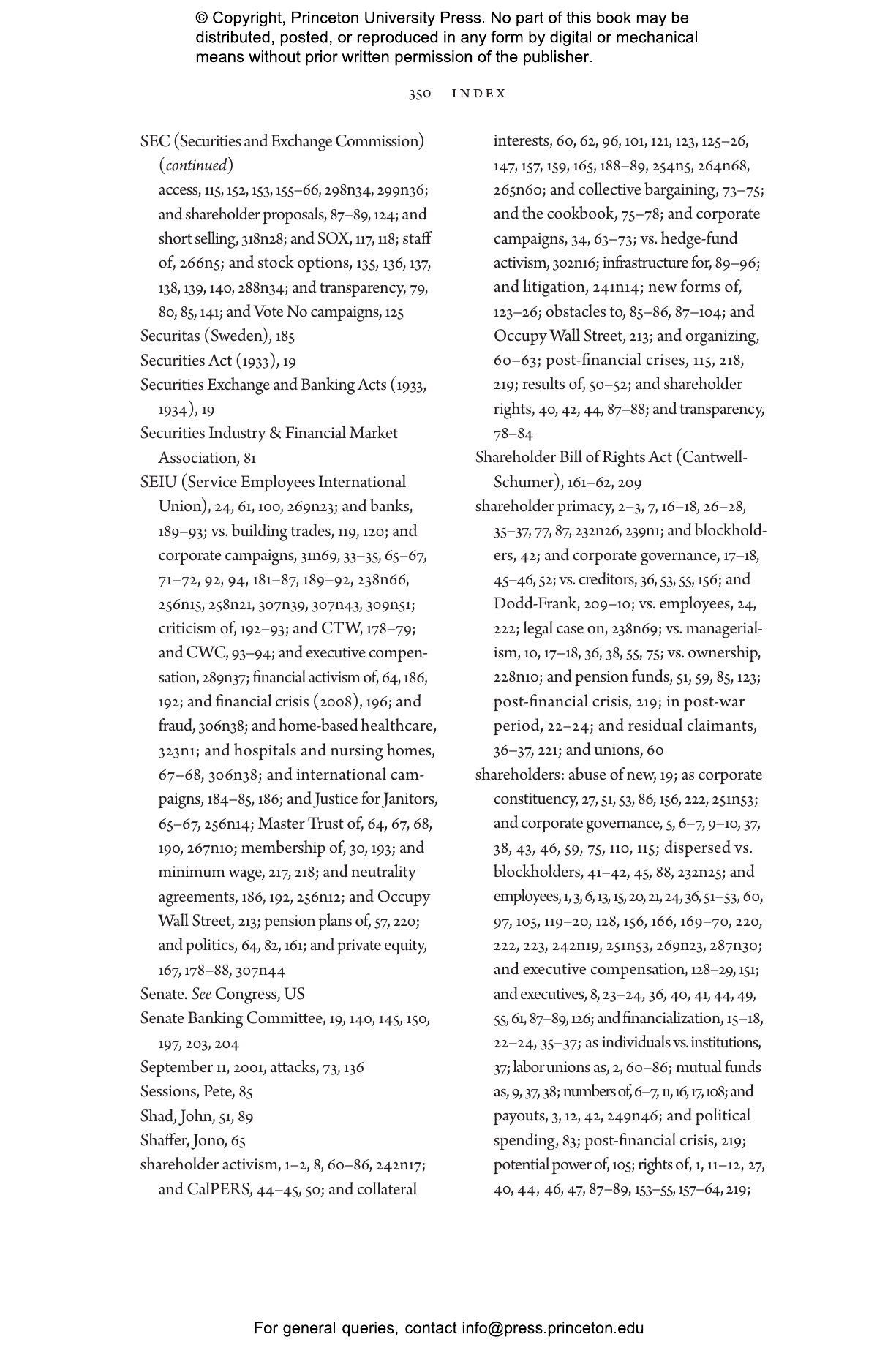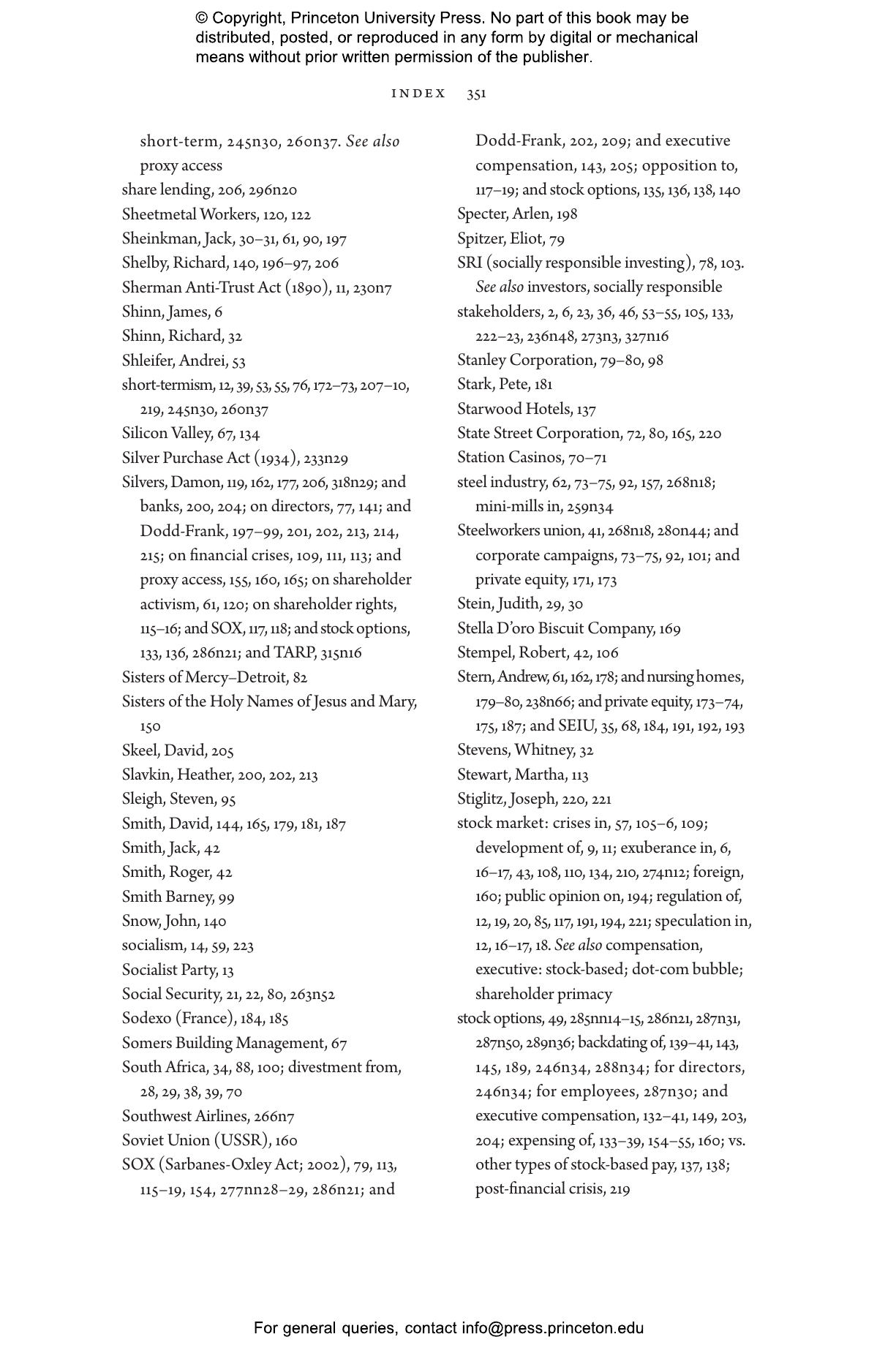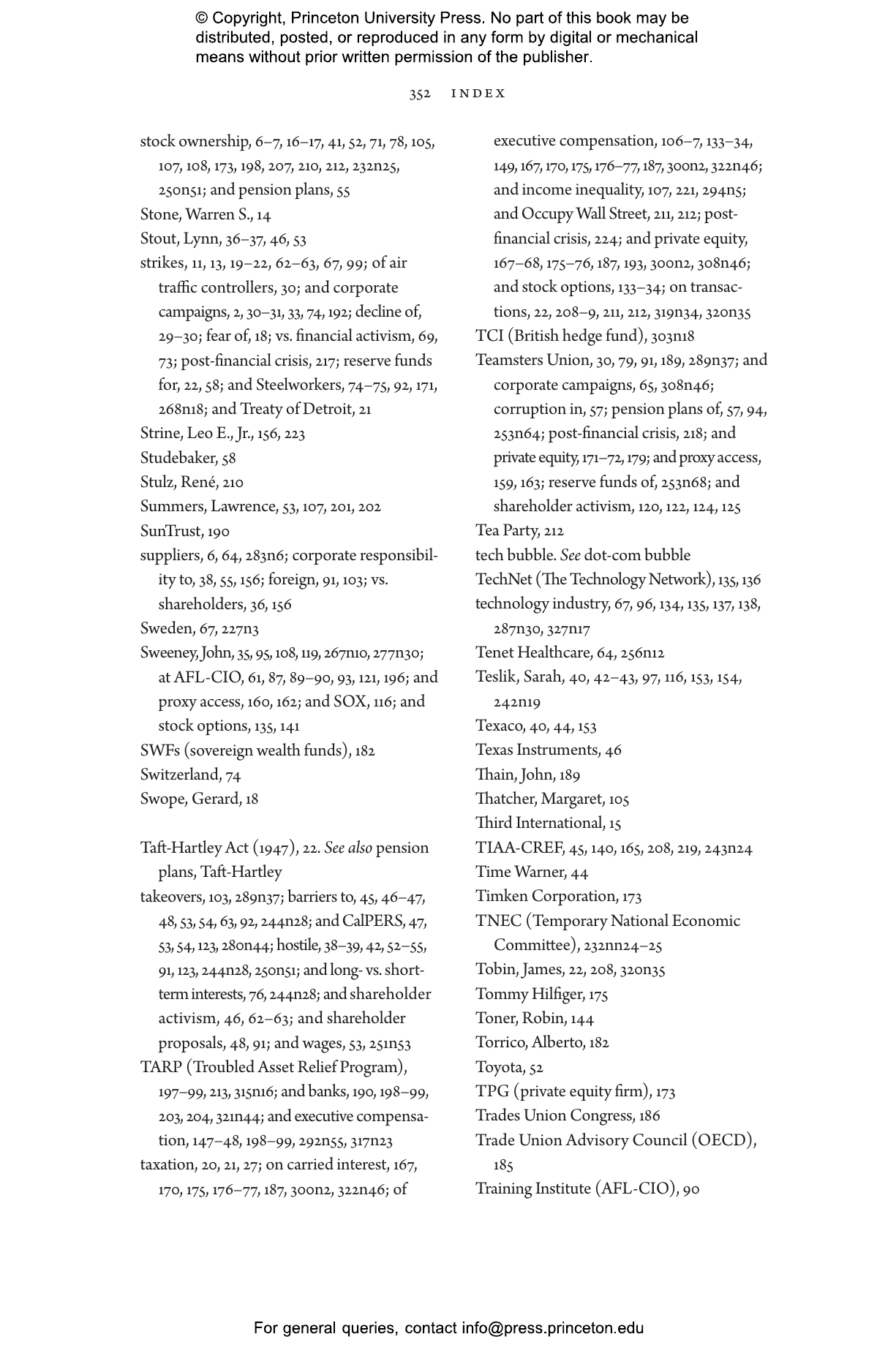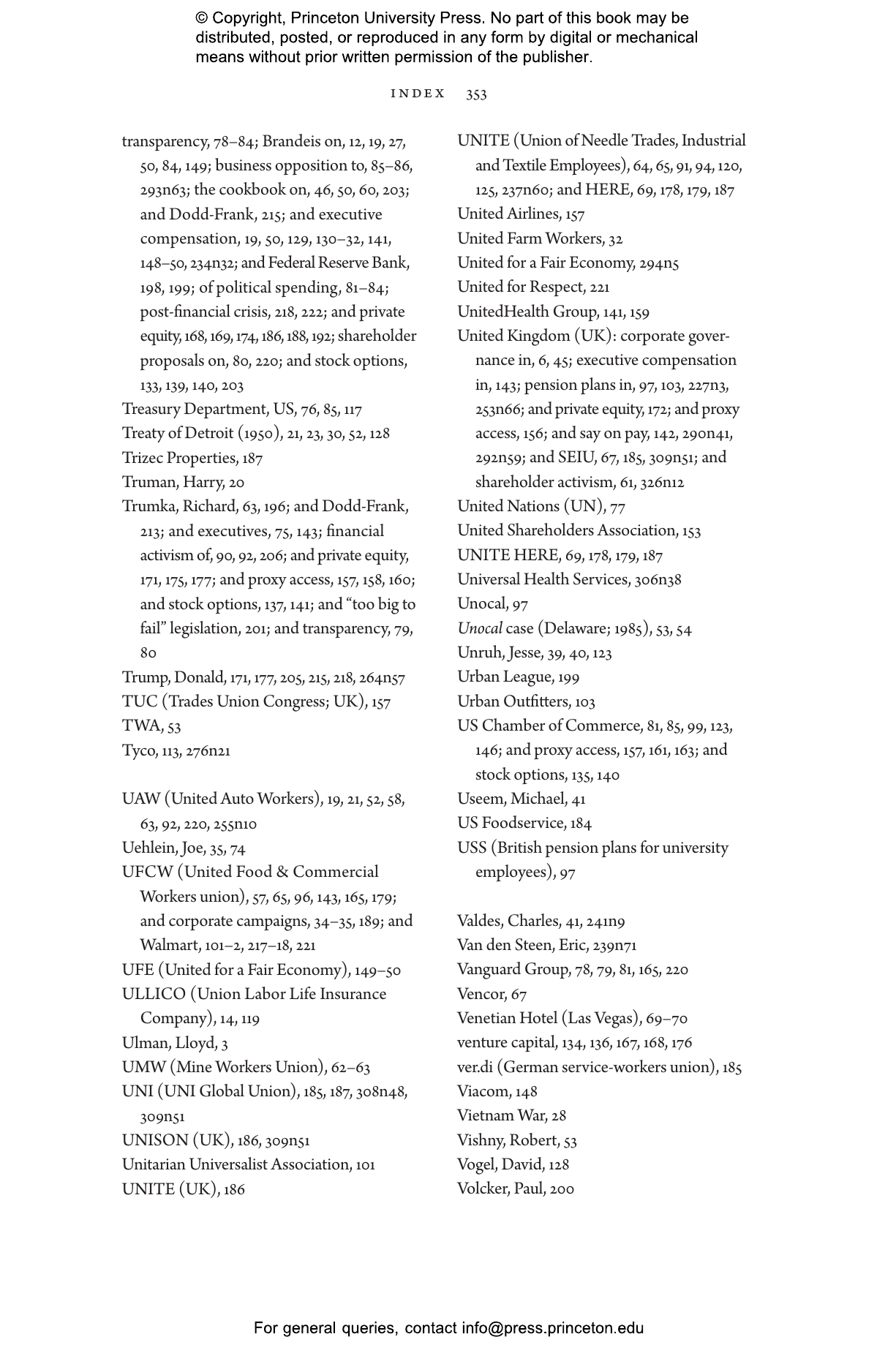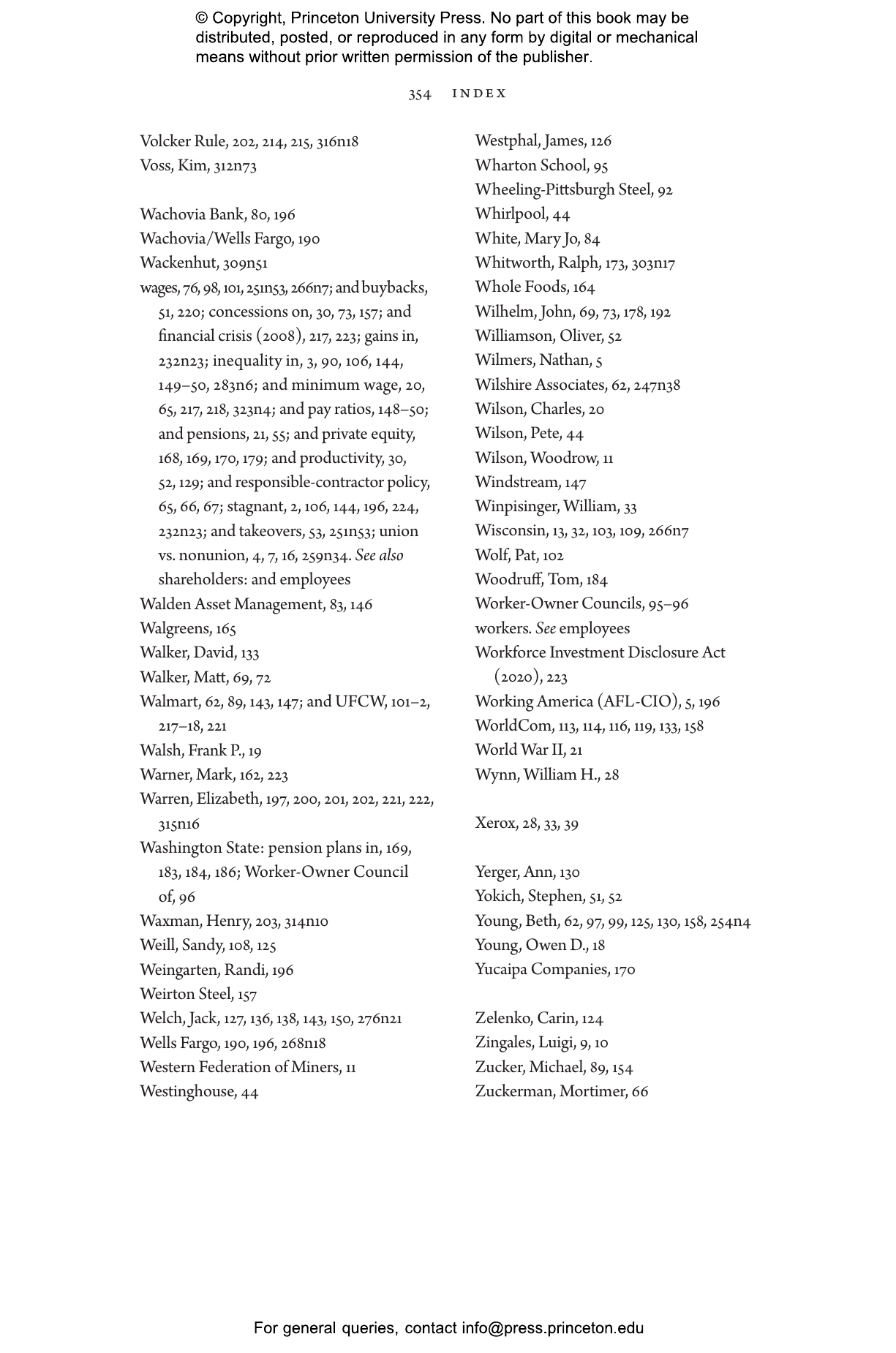Since the 1970s, American unions have shrunk dramatically, as has their economic clout. Labor in the Age of Finance traces the search for new sources of power, showing how unions turned financialization to their advantage.
Sanford Jacoby catalogs the array of allies and finance-based tactics labor deployed to stanch membership losses in the private sector. By leveraging pension capital, unions restructured corporate governance around issues like executive pay and accountability. In Congress, they drew on their political influence to press for corporate reforms in the wake of business scandals and the financial crisis. The effort restrained imperial CEOs but could not bridge the divide between workers and owners. Wages lagged behind investor returns, feeding the inequality identified by Occupy Wall Street. And labor’s slide continued.
A compelling blend of history, economics, and politics, Labor in the Age of Finance explores the paradox of capital bestowing power to labor in the tumultuous era of Enron, Lehman Brothers, and Dodd-Frank.
Awards and Recognition
- Shortlisted for the EGOS Book Award, European Group for Organizational Studies
"Jacoby brilliantly illustrates the Sisyphean character of labor’s exertions on the tilted terrain of finance. Yet, equally importantly, he wisely shows how unions began learning to fight on a battlefield likely to become even more decisive in coming years. Anyone who seeks to understand labor’s present predicament or fight those future battles simply must read this indispensable book."—Joseph A. McMartin, Labour History
"A must read for labor, management, and finance scholars and their students. . . . At a time when financialization, extreme inequality, and calls for ‘accountable capitalism’ are center stage, Jacoby’s book is timely. He offers a landscape of historical examples of labor’s financial strategies, what has worked and what hasn’t, and why it is so difficult to change deeply embedded government rules and corporate norms that favor the rich and powerful. His research is painstaking and impeccable—bringing to life his inside stories of union shareholder campaigns and political struggles over financial regulation."—Rosemary Batt, Industrial and Labor Relations Review
"Jacoby’s book is an impressive and vital addition to the history of organised labour. By also getting readers to think about the question of what modern financialization has wrought, it has much broader relevance. It deserves a wide readership."—Jeff Borland, Economic Record
"Jacoby focuses on explaining his source material, rather than belaboring broad lessons. This will make the book of interest to employment relations practitioners and to academics across multiple disciplines. But, several general themes emerge . . . labor’s role (both as handmaid and as critic) in the shareholder revolution and financialization. . . . the ubiquity of feuds and bedfellows in strategic campaigning. . . . Jacoby demonstrates how these webs of ownership and employment intermediation, often identified as a barrier to traditional worker bargaining power, also offer new sources of worker leverage. Beyond these core themes, Jacoby litters the book with insights that could fill a whole shelf of future dissertations."—Nathan Wilmers, Perspectives on Work
"Readers of this book will encounter numerous lessons of value."—Laura J. Owen, Economic History Association
"Jacoby’s account offers a wealth of detail. . . . All of this material is organized into a coherent and compelling argument, and it will benefit those interested in corporate governance, the history of corporate social responsibility, and the role firms play in mediating economic inequality."—Bruce G. Carruthers, Administrative Science Quarterly
"[Jacoby] documents, with remarkable clarity, the processes which led to the union movement changing its strategic direction towards financialisation, and in doing so more or less abandoning its historical priorities. . . . My strong recommendation is to read and follow the book in its entirety, and with care and attention to detail."—Gaby Ramia, Labour & Industry
"[Labor in the Age of Finance] is clearheaded. . . . Jacoby recognizes that there are still broad structural political and economic forces arrayed against a real resurgence of unions."—Neil Fligstein, Contemporary Sociology
"[A] fine book. . . .This smart and sober volume is unsurpassed as a starting point for anyone who seeks to understand both the urgent necessity and the enormous difficulty of making financial markets more accountable to the common good."—Joseph A. Mccartin, Finance & Development
"Jacoby’s book provides a major contribution to the literature in political economy of corporate governance and labor."—Thibault Darcillon, Competition & Change
"By connecting two bodies of scholarship that do not often draw illumination from one another—labor and financial history—Jacoby succeeds in shedding light on a critical episode in the American union movement’s ongoing efforts to reinvent itself for the twenty-first century."—Max Fraser, Political Science Quarterly
"Sanford Jacoby has achieved a truly rare feat: taking a narrow, specialized, and somewhat obscure topic and shaping it into a magisterial narrative that provides true understanding of the players and the drama involved. Labor in the Age of Finance is a tour de force that captures the labor movement’s efforts to muddle through during the ascendance of corporate finance without losing its way."—Matt Bodie, Jotwell
"Sanford Jacoby has produced a series of highly important books that trace the evolution of the modern corporation in the United States, its employment practices, and examined the consequences for organized labour and working people."—Peter Gahan, Journal of Industrial Relations
"Excellent."—Matthew Soener, International Journal of Comparative Sociology
"Jacoby’s analysis . . . will prove helpful for labor advocates as much as for historians and social scientists interested in labor’s place in an economy dominated by finance capitalism."—Jeffrey Helgeson, Journal of American History
"Jacoby’s fine book . . . has opened a path and set out a conceptual framework for future archival work."—Kim Phillips-Fein, Business History Review
"Deeply researched, compellingly written. . . . Labor in the Age of Finance makes a significant contribution to discussions, both historical and contemporary, about whether the labor movement’s neglect of organizing is responsible for the decline in union power and whether the movement employed the correct tactics to reverse this decline."—Reuel Schiller, Reviews in American History
“Jacoby has produced a well-organized, interesting, and well-structured record of a history that might otherwise have remained hidden and untold.”—David Webber, Boston University
“Extremely convincing. Jacoby traces the critical narrative of how labor unions and shareholder primacy contributed to the dynamics of the era, and cautions that we view the decline of labor as something separate from the rise of finance at our peril.”—Lenore Palladino, University of Massachusetts, Amherst
“Jacoby has produced a brilliant compendium of labor’s struggles with publicly traded companies in the 1990s and 2000s as the cult of shareholder value permeated corporations and the influence of financial interests grew.”—Eileen Appelbaum, Center for Economic and Policy Research
“Jacoby brings his deep knowledge of corporate governance to bear, and along the way you learn how the mechanisms of corporate governance are not nearly as clear as one stock, one vote.”—Louis Hyman, Cornell University
"Jacoby brings a historian's eye to the vexed relation of labor to finance capital. The story is a fascinating one that highlights the dilemma facing labor unions in their capacity as shareholders. Is it really possible to transform the power of money into power for workers? Jacoby shows that labor's influence over capital is more extensive than many will have imagined, and is likely to endure."—Simon F. Deakin, University of Cambridge
“The financialization of corporate America created an unfamiliar terrain upon which organized labor has sought to fight. Sanford Jacoby’s comprehensive, highly readable history of this struggle opens the door to the myriad ways in which unions and their pension-fund allies tried to win strikes, democratize corporate governance, negotiate with private equity, and enact new regulatory laws that might tame capitalist excess. There was more failure than success, but Jacoby’s remarkably insightful analysis will henceforth be essential to any understanding of labor’s twenty-first-century cause.”—Nelson Lichtenstein, University of California, Santa Barbara
"Jacoby tells a fascinating and important story about how labor unions found themselves espousing shareholder primacy at the turn of the twenty-first century. Anyone who is interested in the history of unions or corporate governance will want to read this book."—Margaret M. Blair, author of Ownership and Control: Rethinking Corporate Governance for the Twenty-First Century
"Organized labor has been powerfully affected by the financialization of the U.S. economy. In fact, unions themselves have been active in attempting to shape this process for the better, using their pension resources to push back against corporate and financial excesses. In this important and readable book, Sanford Jacoby uses this perspective to trace the rise, fall, and possible rejuvenation of American unions."—Barry Eichengreen, University of California, Berkeley
"This compelling and important book demonstrates how a reinvigorated labor movement is the first and best way of reducing inequality and strengthening democracy. Labor in the Age of Finance is destined to become the leading book on the history of labor's corporate finance activism."—Teresa Ghilarducci, coauthor of Rescuing Retirement: A Plan to Guarantee Retirement Security for All Americans
